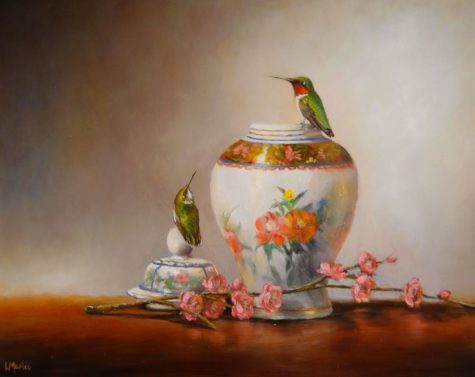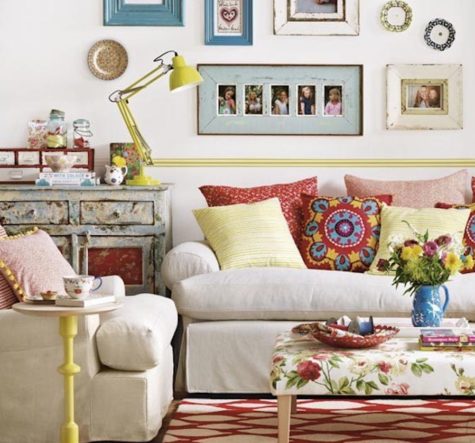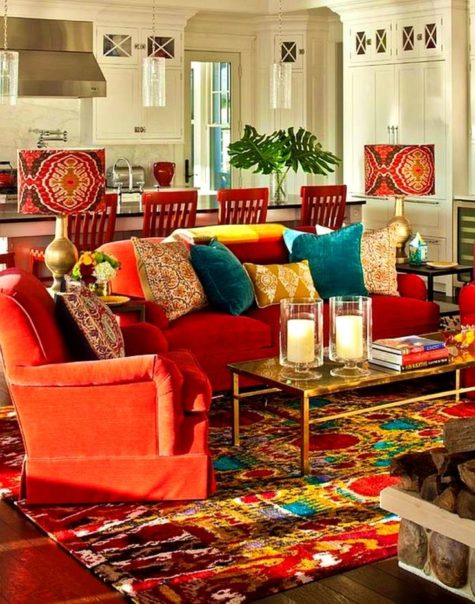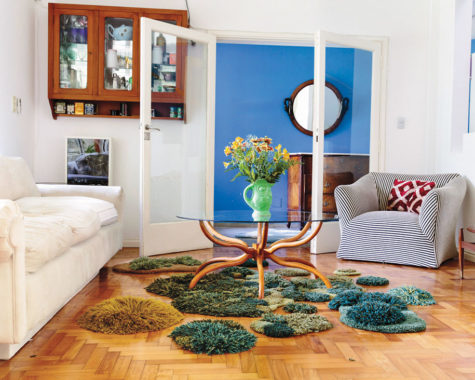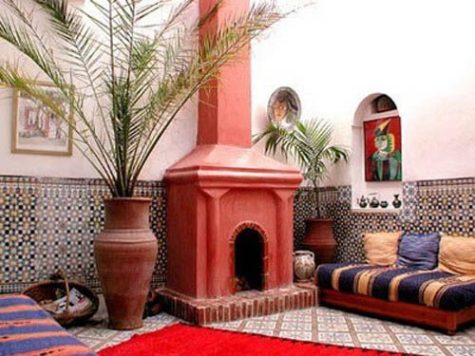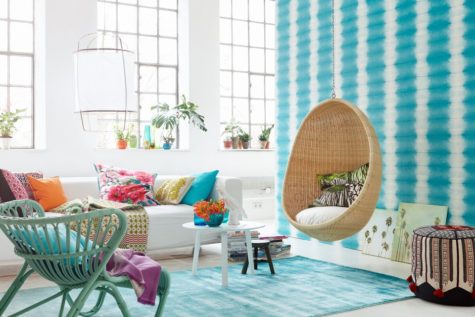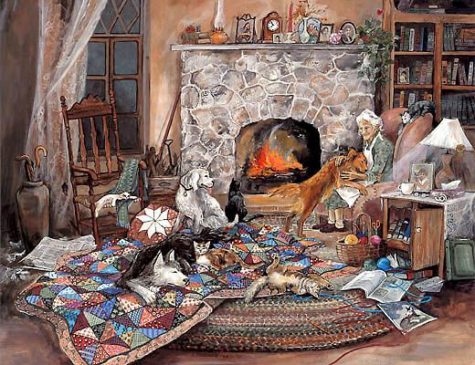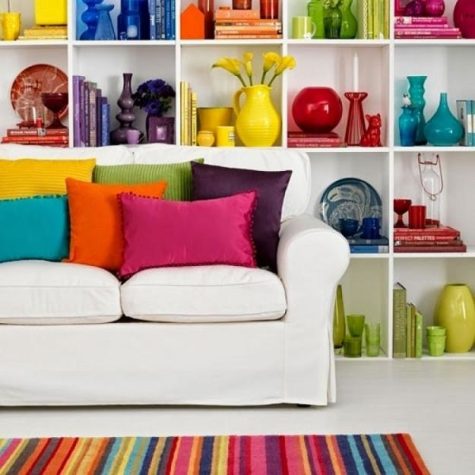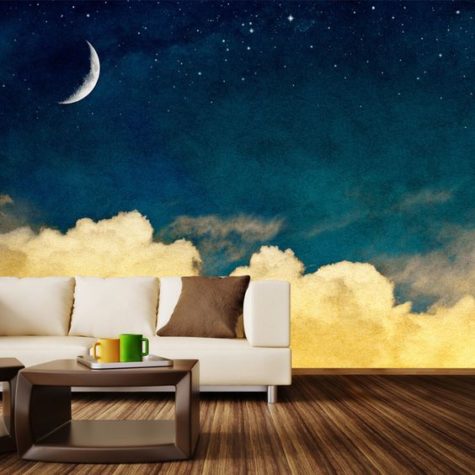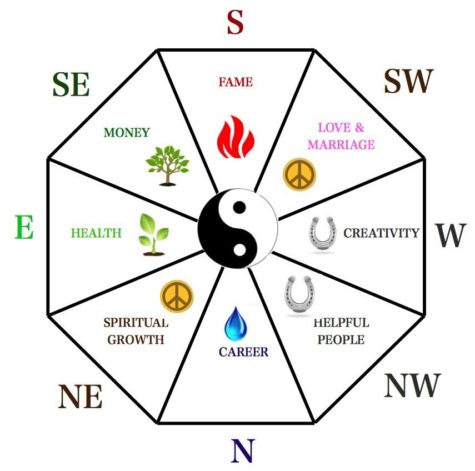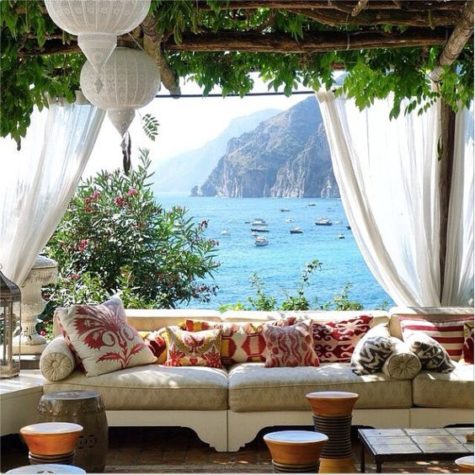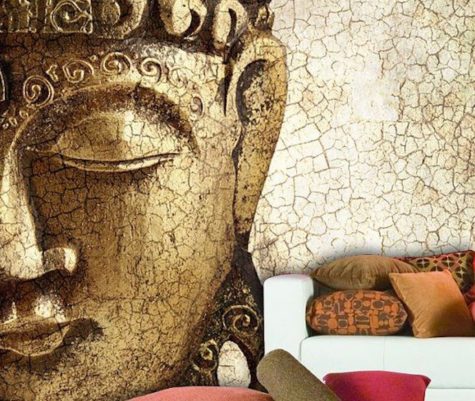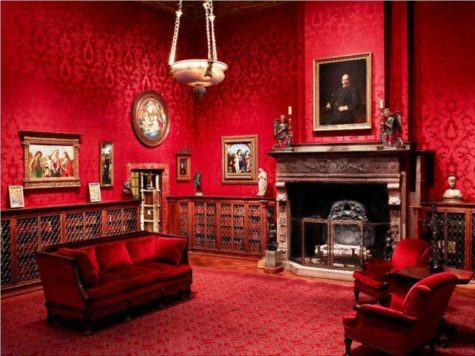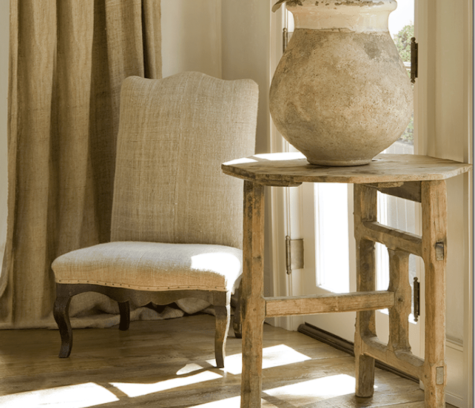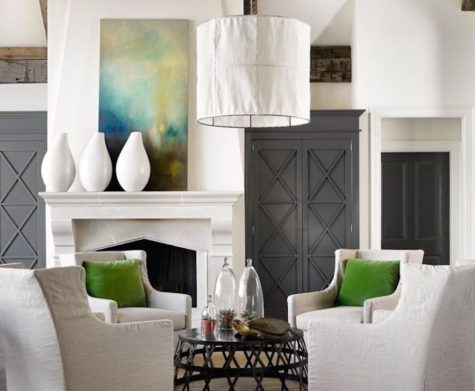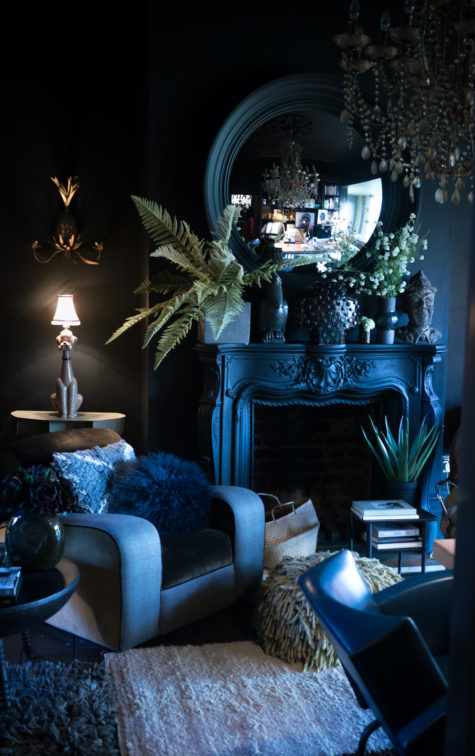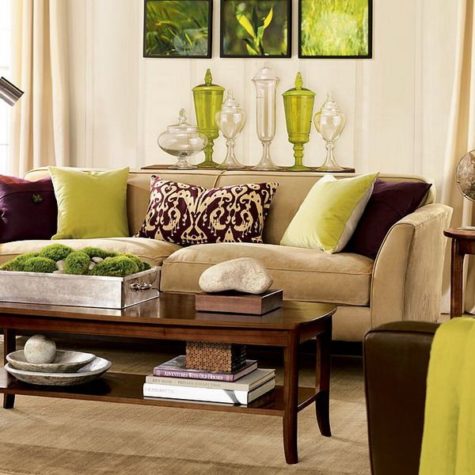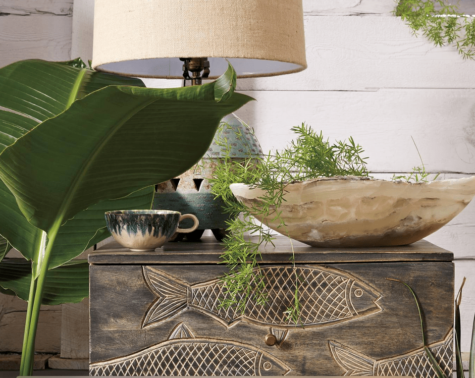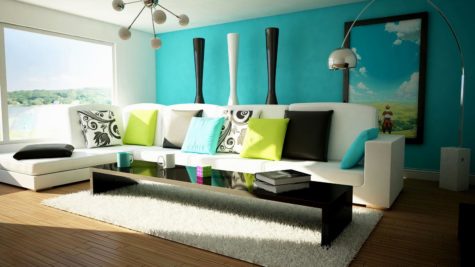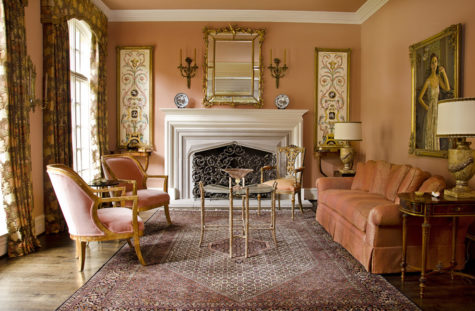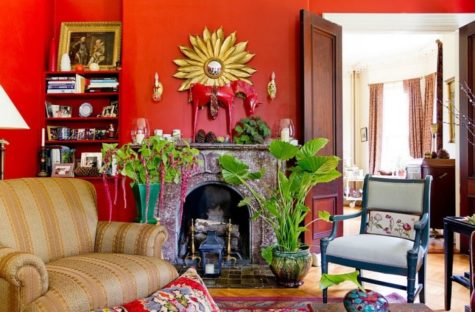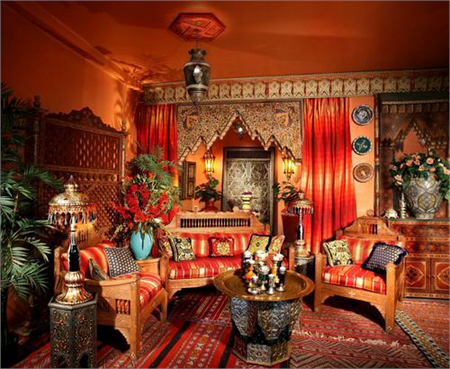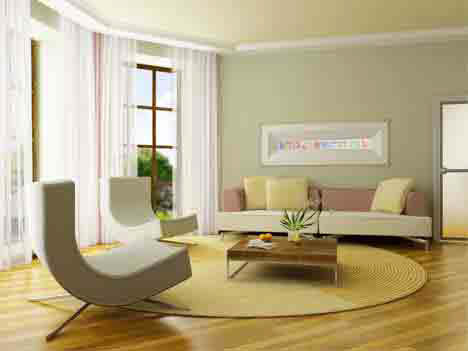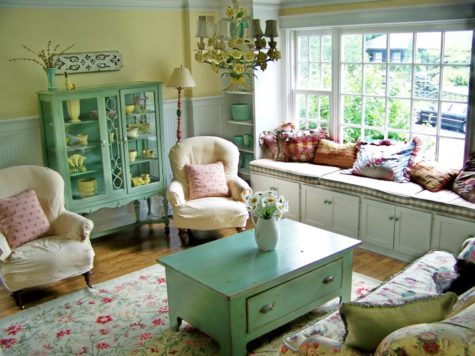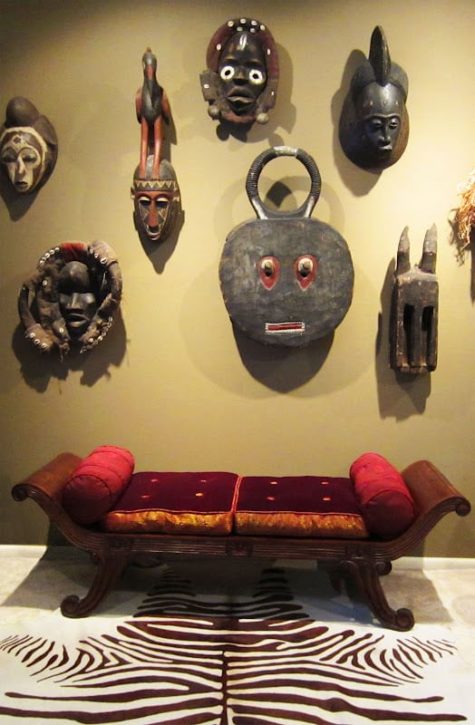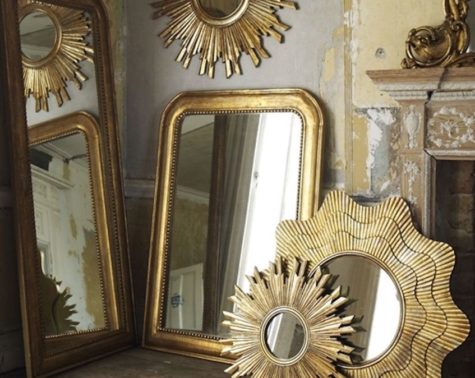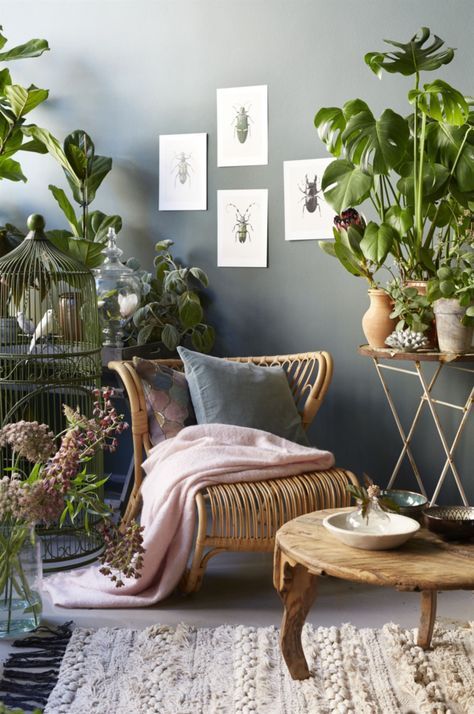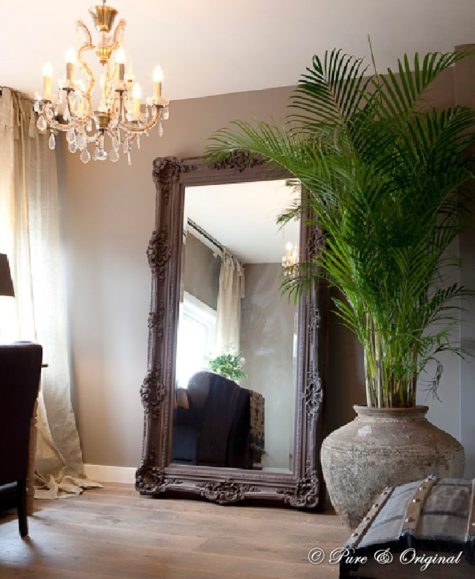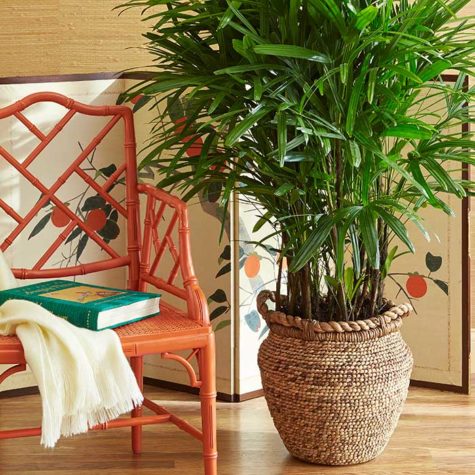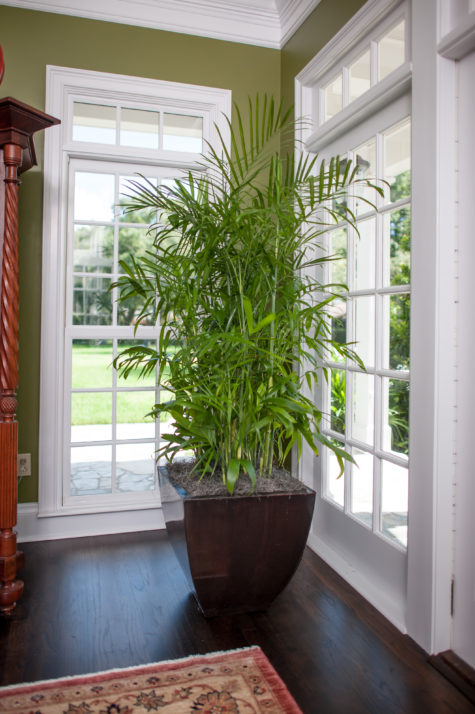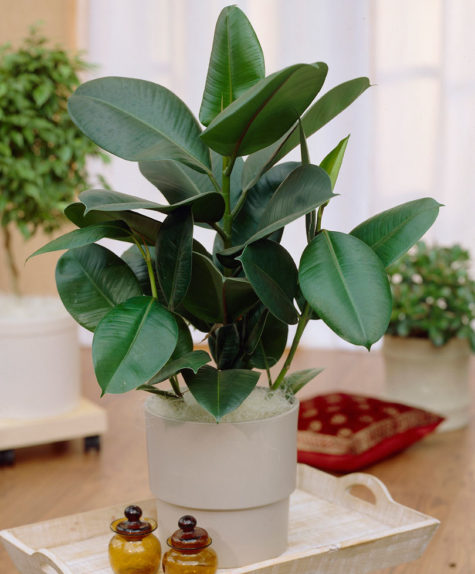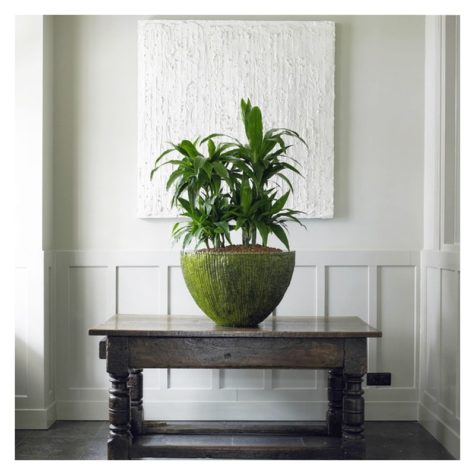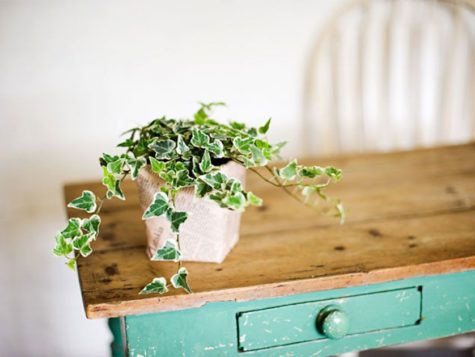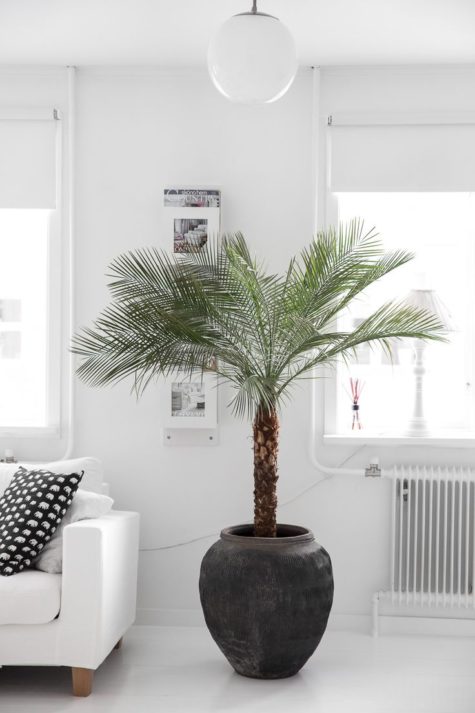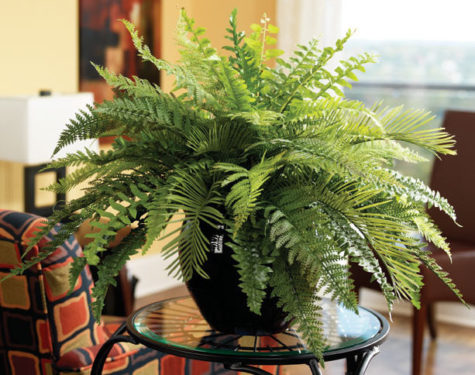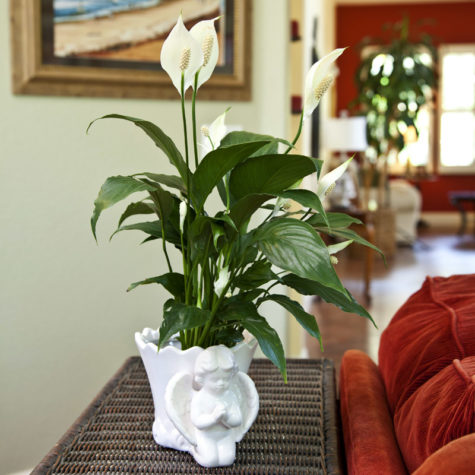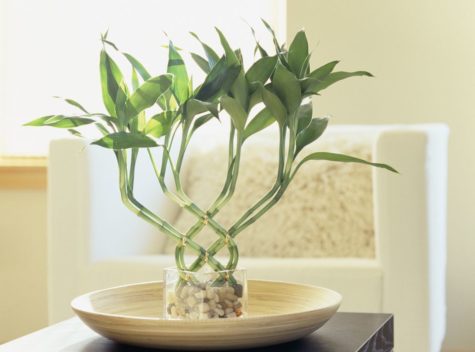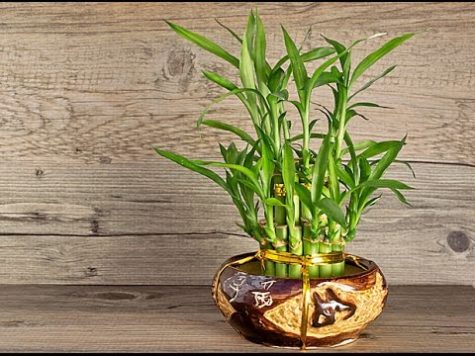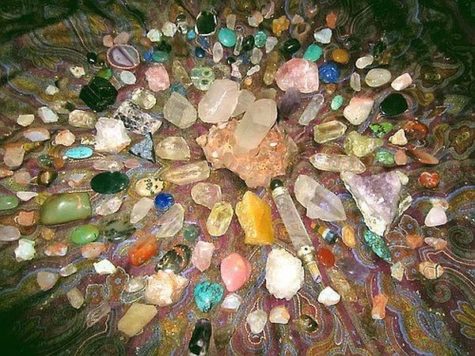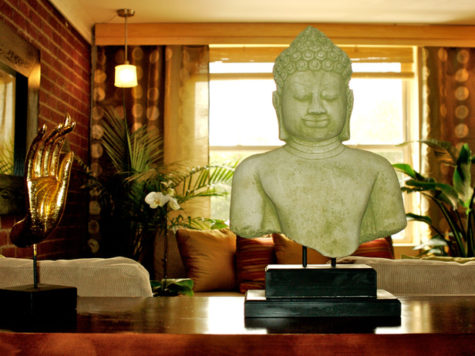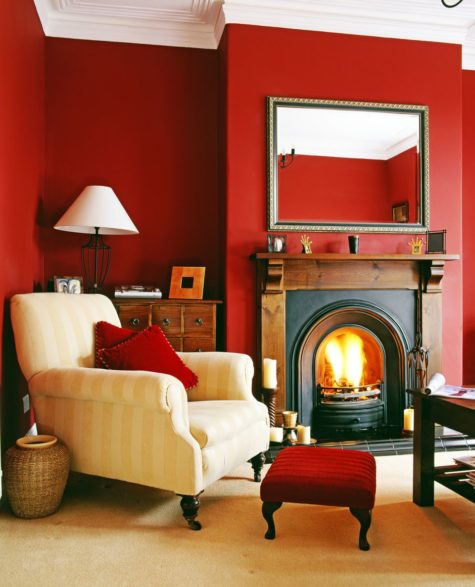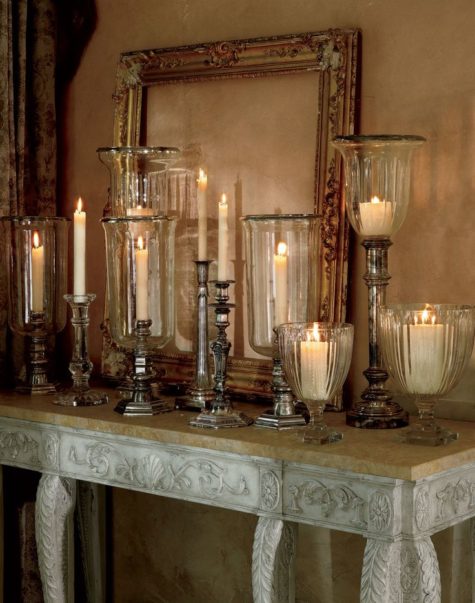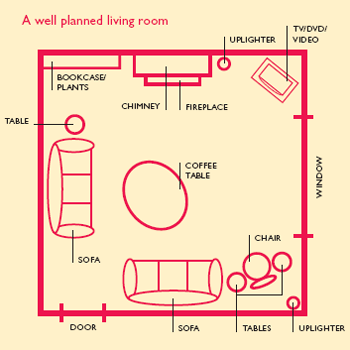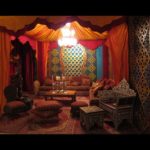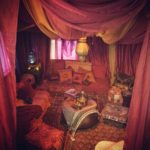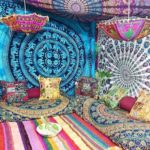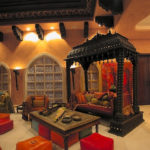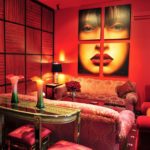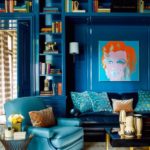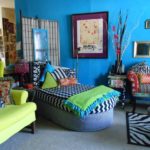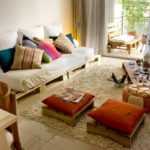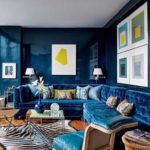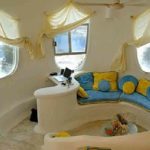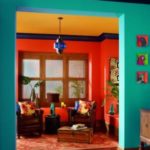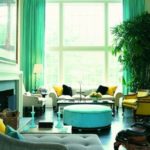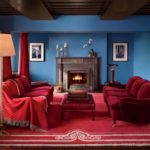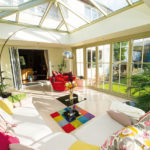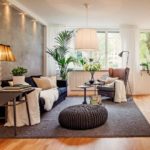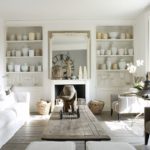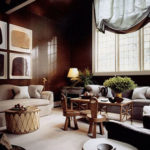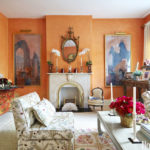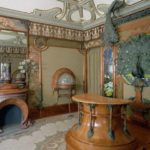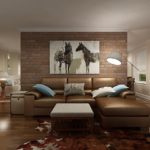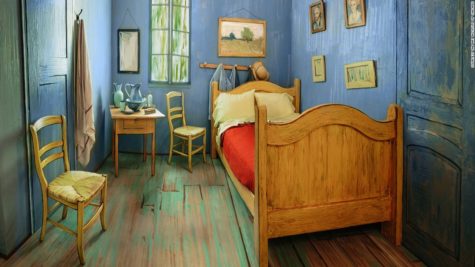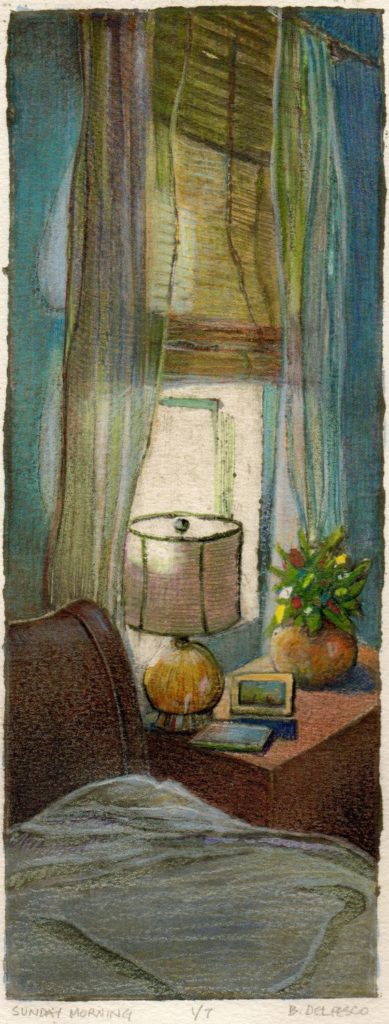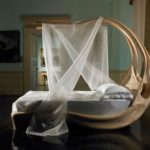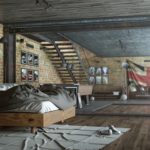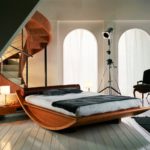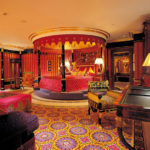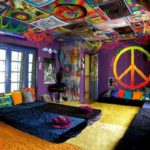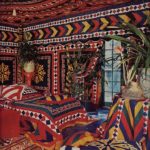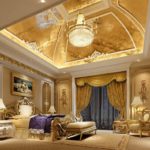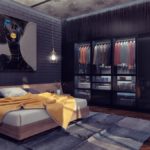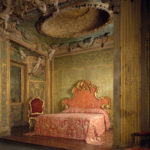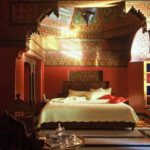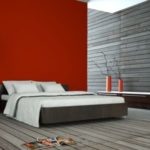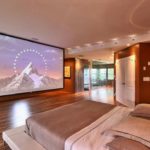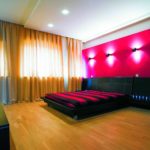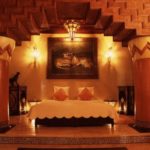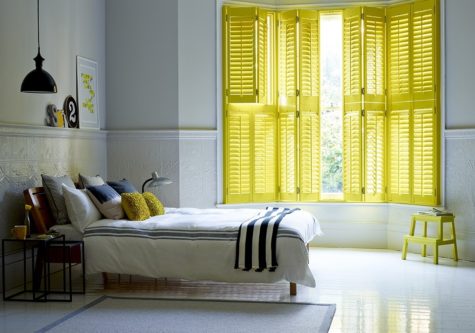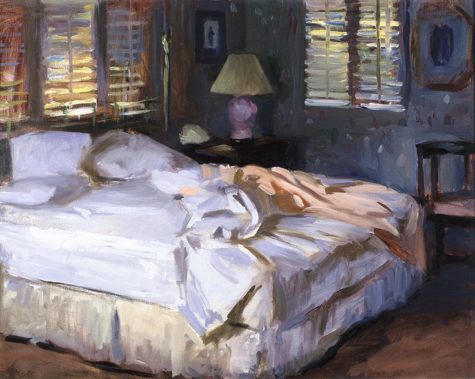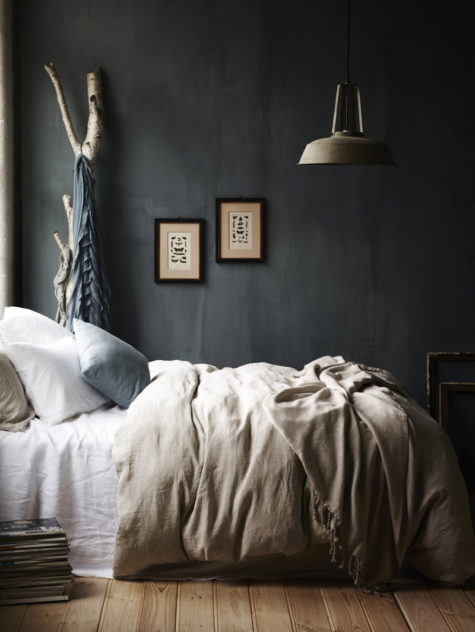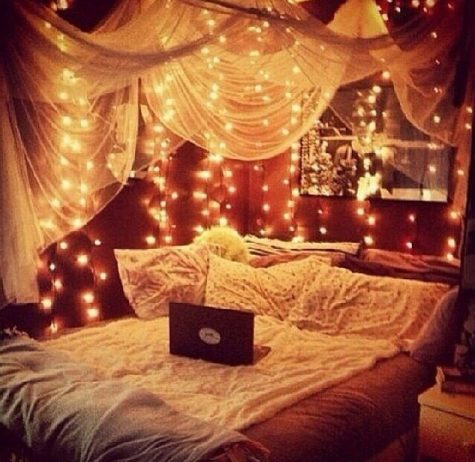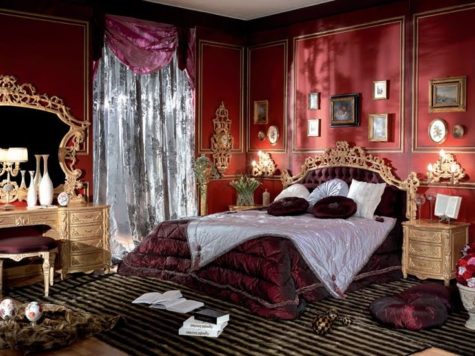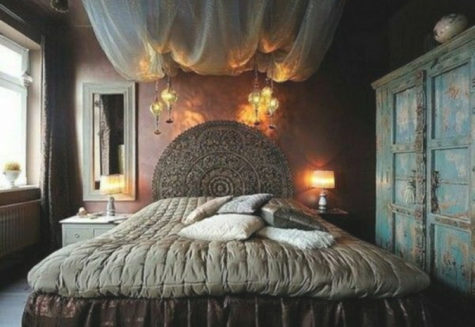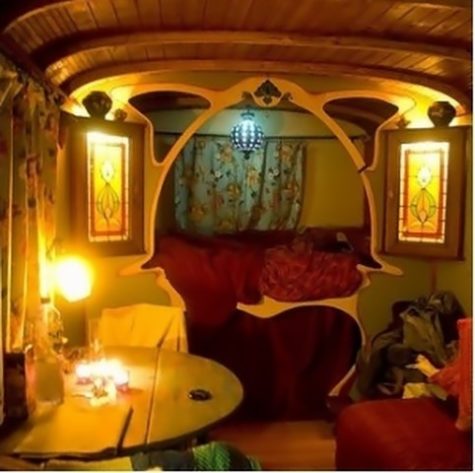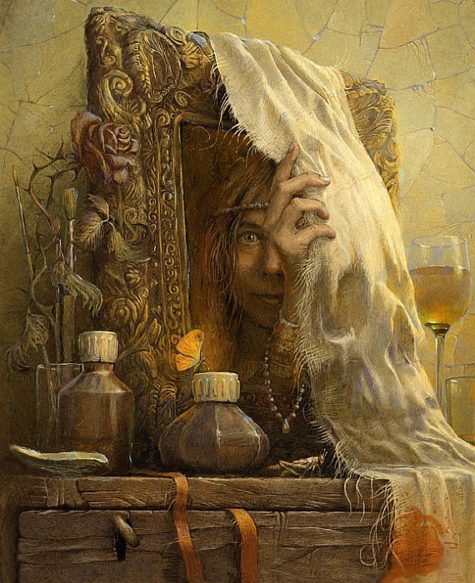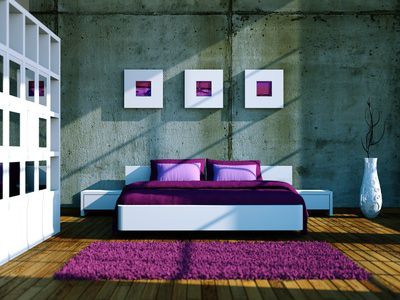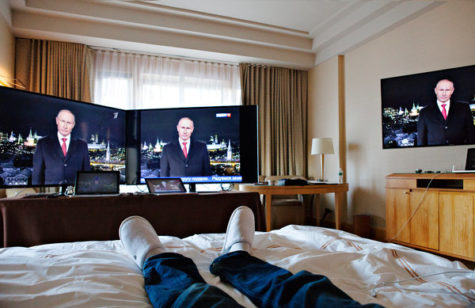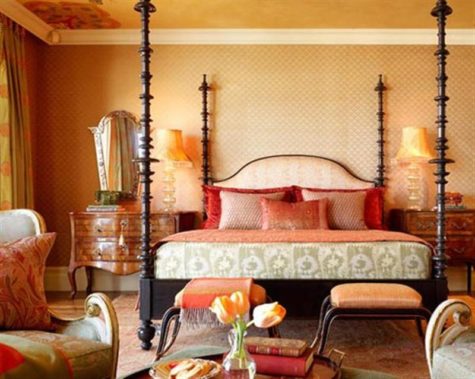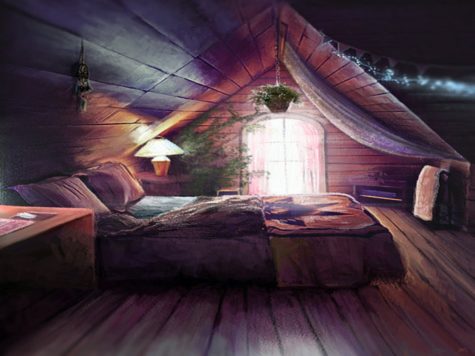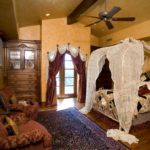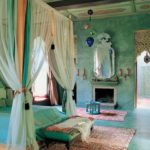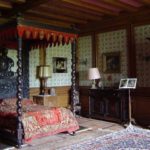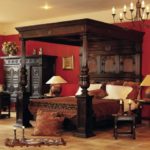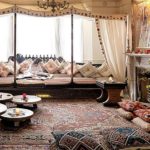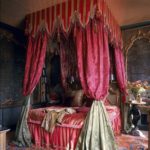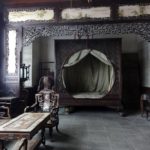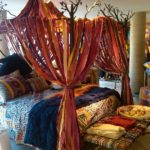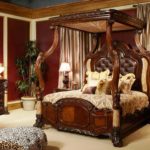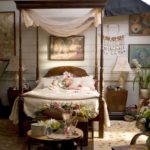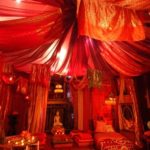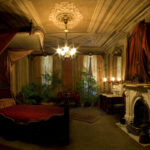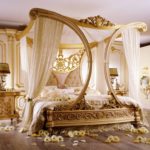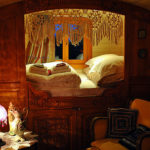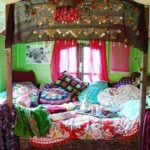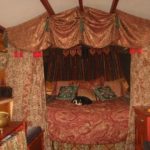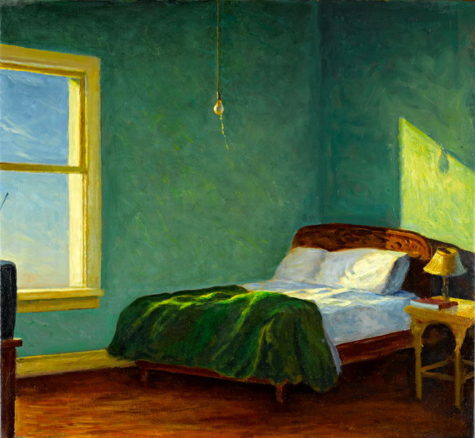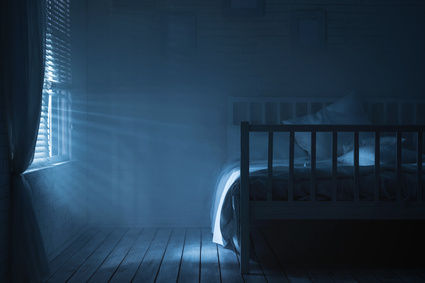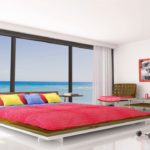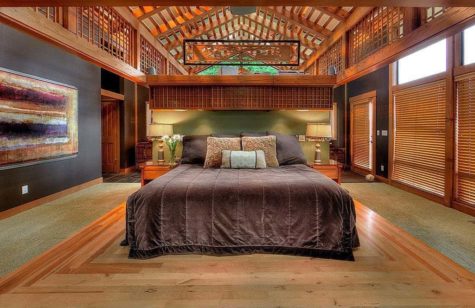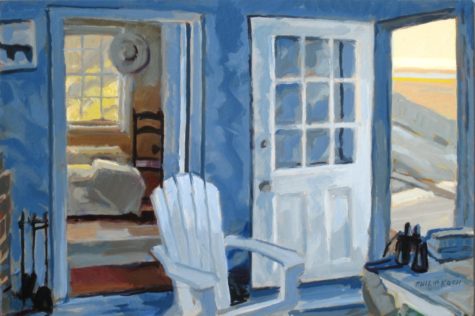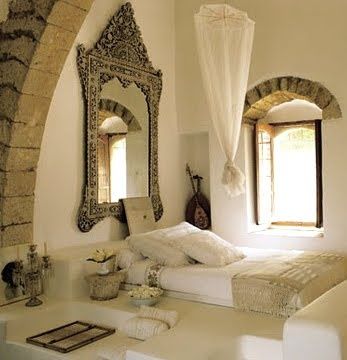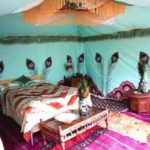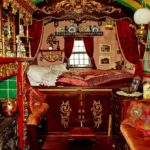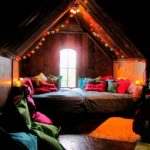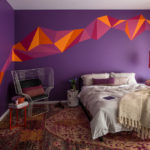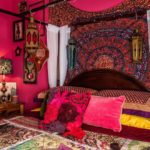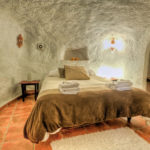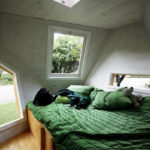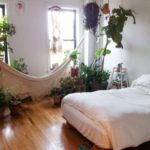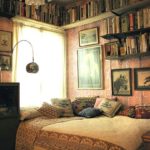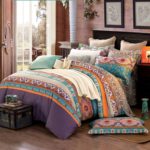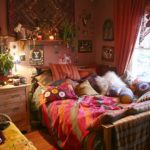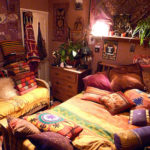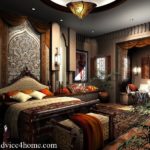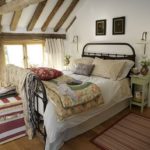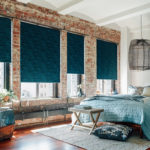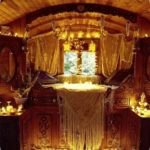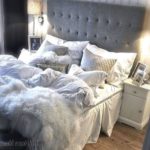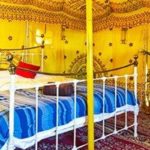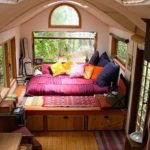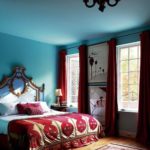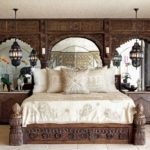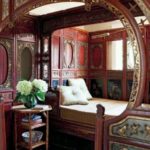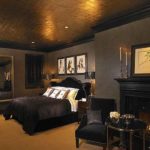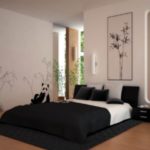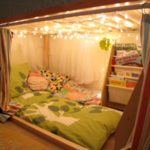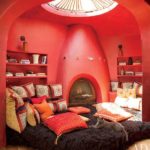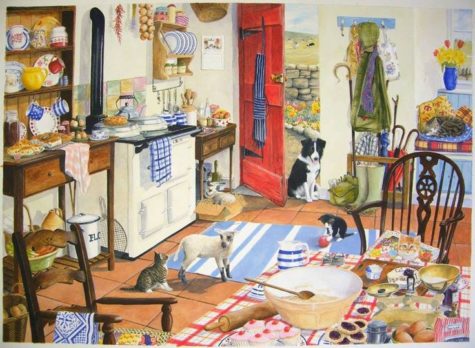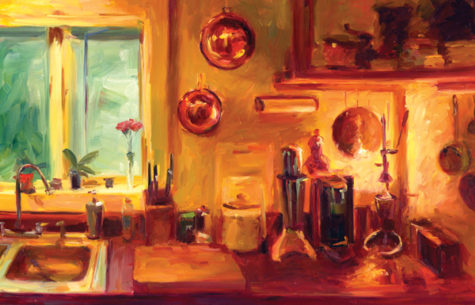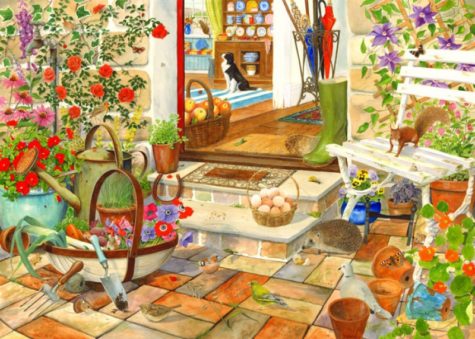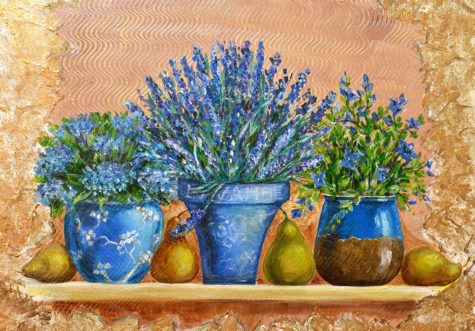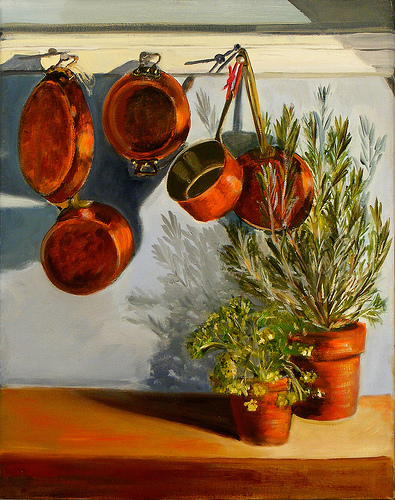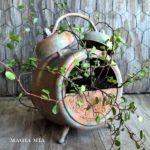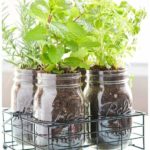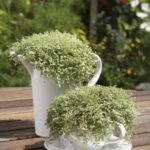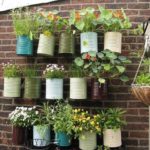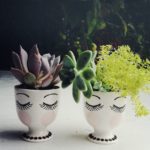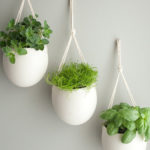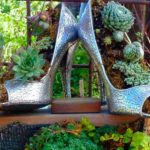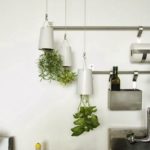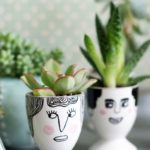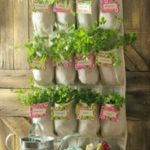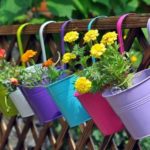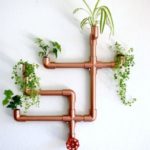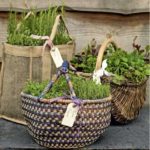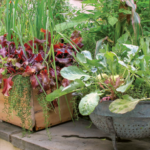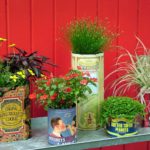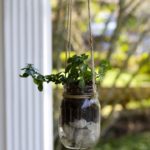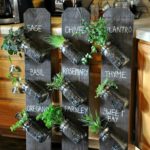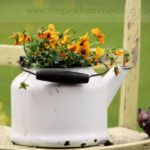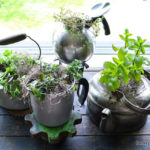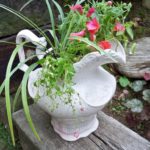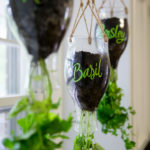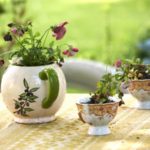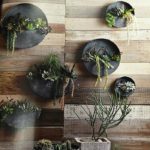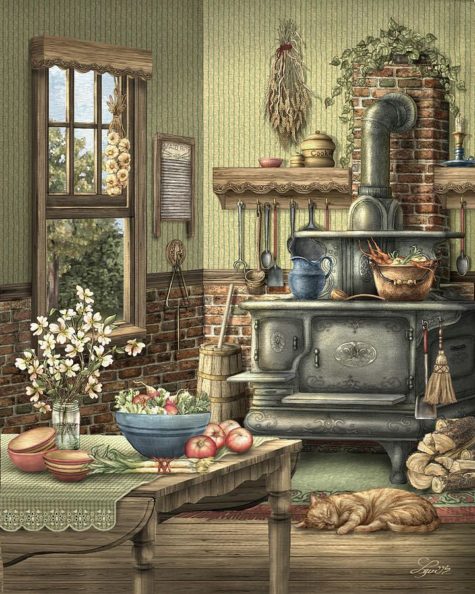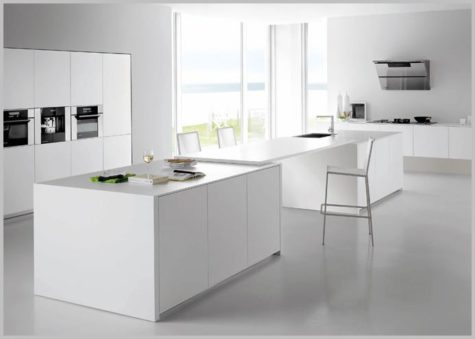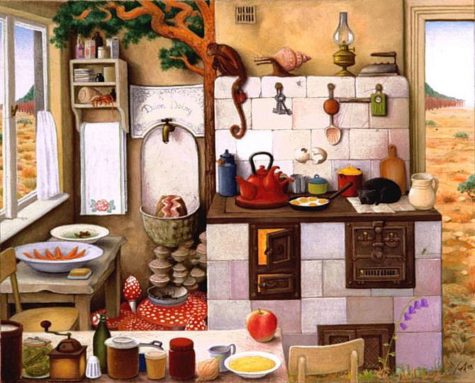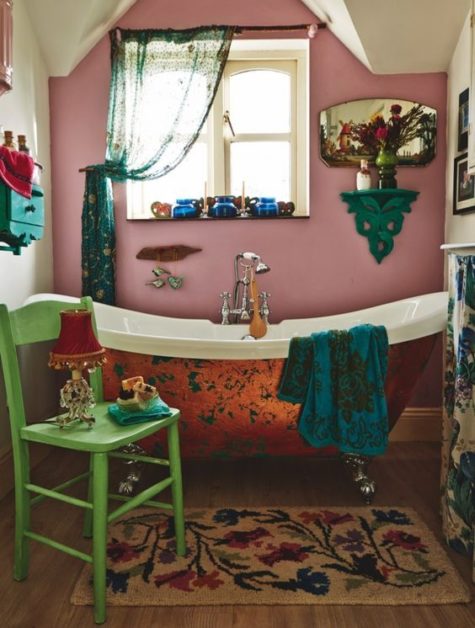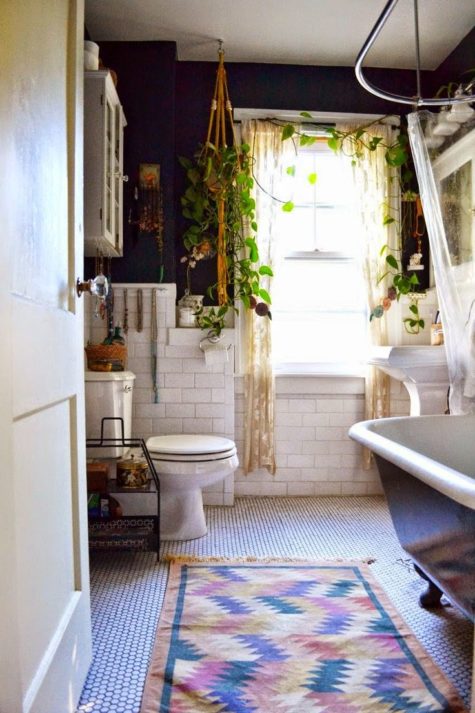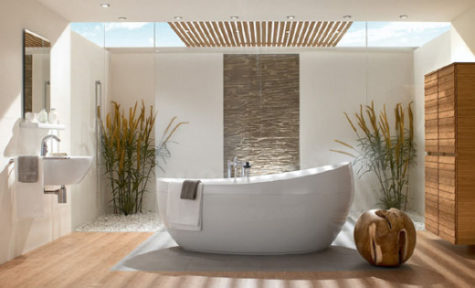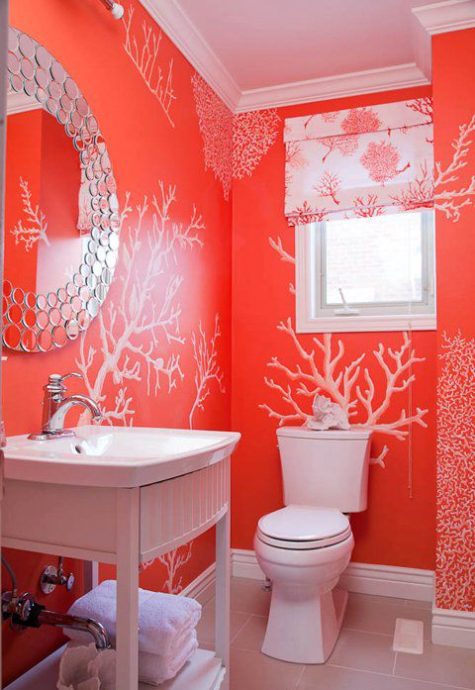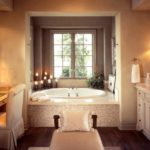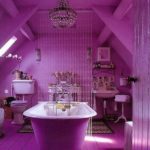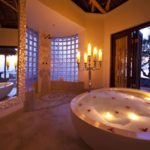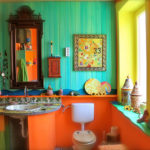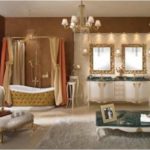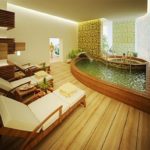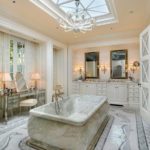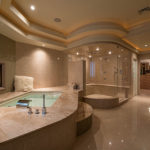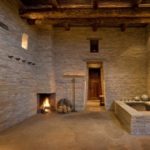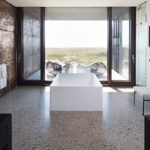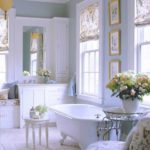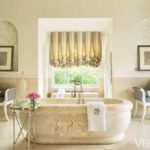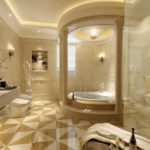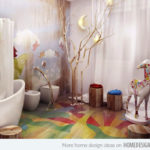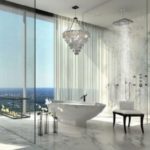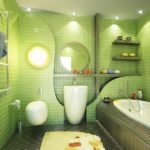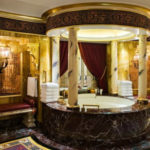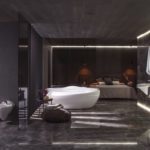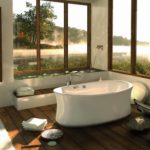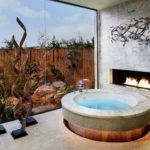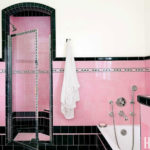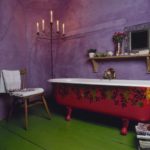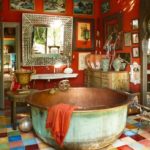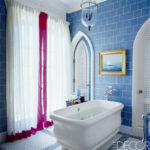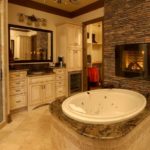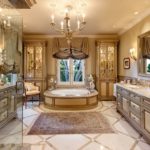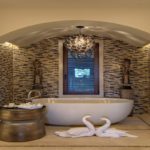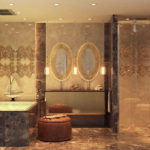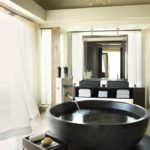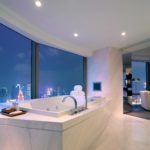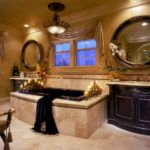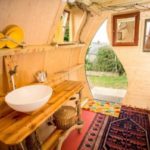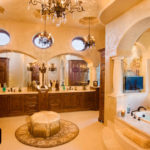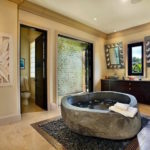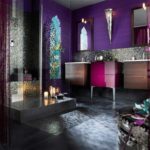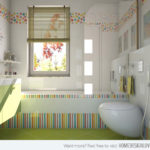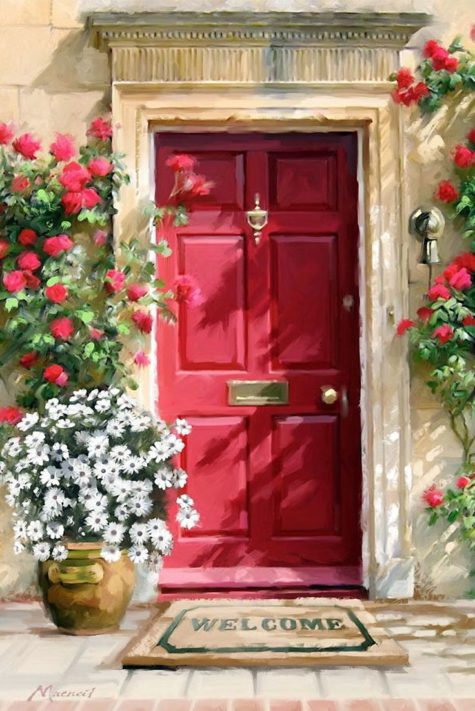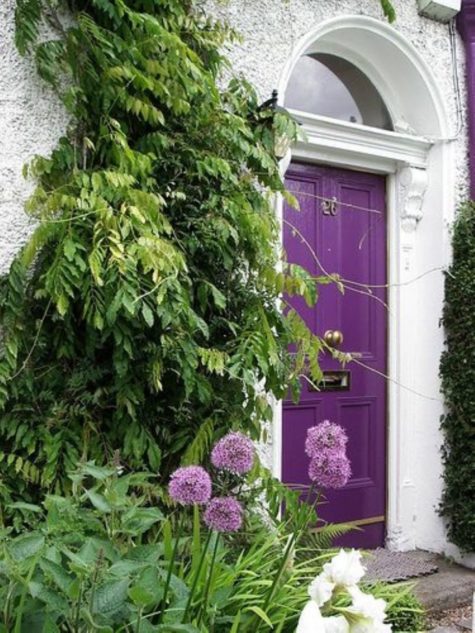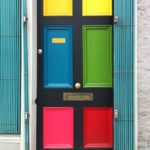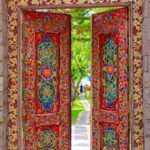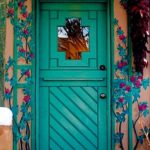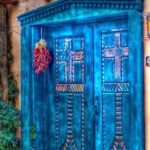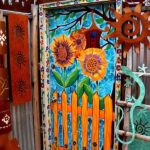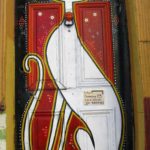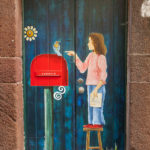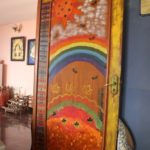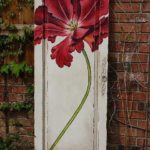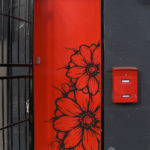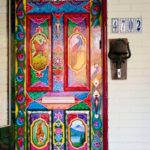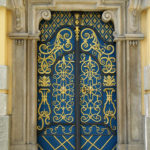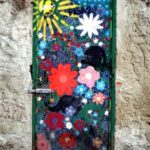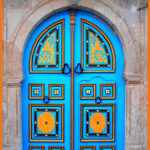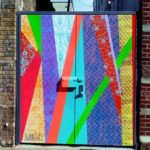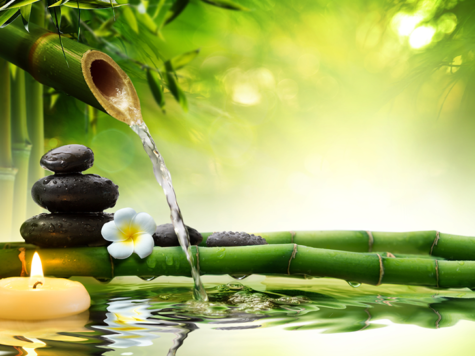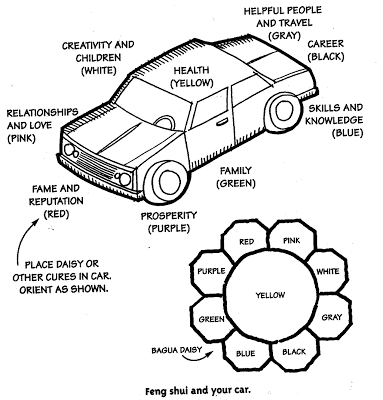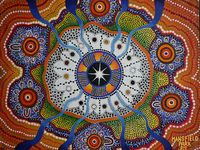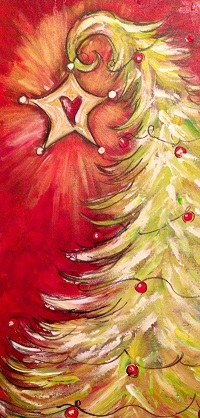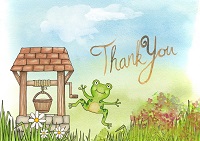Feng Shui
A Feng Shui Roundup
This latest project, Living As If…, has been jam packed full of great information. I thought it might be helpful for those of us who are interested in the Feng Shui aspects of the project to have a quick list of everything we covered over the last 30 days.
Some of these posts are devoted exclusively to the principles and practice of feng shui, and others just have feng shui information included within them.
- The Front Door
- Clean and Clear
- Living Room Feng Shui
- Dining Room Feng Shui
- Kitchen Feng Shui
- Bedroom Feng Shui
- In The Closet
- Back in the Closet
- Let’s Go Outside
- Stopping To Smell The Roses
- Is it nap time?
- Feng Shui in the Bathroom
If you are looking for something specific and don’t have the time or inclination to sift through all those posts, you can follow this link: Feng Shui. It will pull up excerpts from every single post here on The Prosperity Project that mentions feng shui.
Living Room Feng Shui
Living rooms have always been an integral and important part of any home – be it an apartment or an independent house – and that’s because living room is the only place in your home where most of the social and family gatherings happen.
As a place of entertaining guests and a space of family chatting, gathering and relaxation, the living room is supposed to be lively and harmonious. The living room Feng Shui is related to personal wealth and health, as well as the peace and happiness of the whole family.
The living room is an essential part of a house and it is also one of the most vulnerable parts of a home. Vulnerable because, in majority of houses, living room is the first room that someone goes to once they enter from the main door and Qi energy isn’t an exception.
Now, imagine a house, in which the Qi entering the home – obviously via living room – is very fast and agitated (fast moving Qi in feng shui is called as Sha-Qi and it’s very inauspicious) or extremely slow and almost still (which is, again, very inauspicious); this Qi will – definitely – interact with family members and bring all sorts of unwanted, unexpected and tormenting situations in life; below is a list of a few – in fact very few – such situations.
- Loss of wealth, money and even leading to bankruptcy.
- Degradation in health and lethal medical conditions.
- Defamation of social reputation.
Now, a feng shui living room is the one that has the ability to transform any type of Qi (extremely fast or dead slow) in to positive Qi (a steady and calmly moving one). The positive Qi is believed to attract wealth, health, good luck and lots of name and fame, which is – after all – what we all want to have. This is – without a doubt – the number one reason to make the living room in your home a feng shui complaint one.
To make it really easy for you to understand and achieve a feng shui living room, we’ve divided the process into steps.
Basic do’s for good feng shui in the living room:
- The living room must be roomy, comfy and pleasing.
- It must receive ample sun light and must be ventilated.
- Place the sofa against a solid wall; it doesn’t need to touch the wall, you can keep 1-2 inches distance.
- While sitting on the main sofa, you must be able to see the main door. If entrance isn’t visible then use a mirror to see the door.
- Place a bowl with crystals, coins, and various wealth symbols on coffee table.
- If there’s a beautiful landscape outside your home, then hang a mirror in such a way that it reflects that landscape. This brings in the positive Qi energy.
- Hang images, posters or pictures that are lively and positive such as a pleasant landscape or smiling faces etc.
- Make sure to cover the TV screen when it’s off else it becomes a sort of mirror.
- Place 2 Foo Dogs on either side outside the main door, as if guarding your home.
For north side of living room
- An aquarium in north brings wealth and auspicious opportunities.
- Keep eight red and one black fish in aquarium.
- Square or rectangular shaped aquariums are best; round ones will also do.
- A water fountain in north also attracts wealth and luck.
- The fountain must flow towards the room and not outwards.
- Hang picture of beautiful water body such as meandering river or a boat/ship sailing (make sure the boat/ship sails into the room).
- Try to use black and blue colors in north.
- TV in north attracts good luck in career.
- Avoid keeping any plants in north side of the living room.
- Avoid placing a fireplace in north side of the living room.
For south side of living room
- Place candles, wood furniture and other wooden décor items.
- You can locate a fire place in south.
- Try to use more of red, pink, orange, and green colors.
- Place TV or plants to get fame and respect.
- Avoid aquarium or anything related to water in south side of the living room.
- Avoid placing mirrors on the south walls.
For east and southeast side of living room
- Put wood items like picture frames, lamps, book shelves etc.
- Hang coins tied with red ribbon in east corner (brings wealth and money).
- Hang dragon painting (looking in to the house) on east wall to bring wealth.
- Place dragon headed tortoise with coin in its mouth in southeast corner (this brings wealth).
- Place a three legged money toad in southeast; it brings money and wealth.
- Use more of green and brown colors in east or southeast.
- Plants in southeast bring wealth and money.
- Plants in East direction attract health.
- Keeping an aquarium in southeast attracts wealth and luck.
- Avoid having a fireplace in the southeast side of your living room.
For west and northwest side of living room
- Keep metal décor objects such as bowls and trays.
- Put metal figurines, furniture, candle holders, photo frames etc.
- Use blue, gray, gold, tan, and bronze colors.
- A family picture in metal frame on west wall brings luck.
- Avoid aquarium or anything related to water in the west or northwest side of the living room.
- Avoid placing mirrors on the west walls.
- Avoid having a fireplace in the west and northwest side of your living room.
For northeast and southwest side of living room
- You can place crystals and other minerals objects.
- Keep pottery and ceramics, such as show pieces, pots, bowls etc.
- Mustard, clay, brown, tan and russet toned colors are best.
- Cut glass and hand-blown glass objects can be kept.
- A fire place in southwest enhances romance and love.
- A fire place in northeast helps in peaceful thinking; also brings luck in education.
- Avoid keeping any plants in the southwest or north east side of the living room.
What you must avoid in the living room
- Avoid windows behind the main sofa.
- Never place the sofa under a beam; this brings head related medical troubles.
- Avoid L shaped sofas.
- Any mirror shouldn’t reflect clutter, dirt or anything negative as that negativity will be attracted to your home.
- Make sure that your image isn’t seen in the mirror while you’re standing at any door.
- Avoid hanging pictures that depict negative emotions such as a weeping girl, vicious animals, war, crime, loneliness etc.
- Avoid clutter and mess in living room (actually this should be avoided everywhere).
- Avoid having a door directly facing the door of living room.
- Avoid turbulent or rough sea paintings as they depict struggle.
Decorating the Feng Shui Way
In feng shui terms, the main challenge with decorating a living room is to create a space that has the ability to not only be beautiful and practical but also have a strong, fresh, clean, and happy energy. A living room that is beautiful and works well on a practical level usually takes quite a bit of planning and persistence (along with the desire to decorate, of course!)
- Clutter
A living room that is clean and clutter free is the only foundation for good feng shui. Yes, we know you might have heard that many times, but this essential first step has to be emphasized again. There can be no solid and good feng shui energy in a space that is infected by clutter, the two of them cannot co-exist; it is either one or the other.
- Air and Light
The next step in good feng shui living room decorating is to be sure your room gets as much natural light and good quality air as it possibly can. Good quality air and good quality light create the foundation of good feng shui energy, and there are many ways to help you do the best with this feng shui step. For example, if you have only a few small windows, decorate with mirrors to bring more natural light, as well as be sure to layer your indoor lighting.
A bright and sunny living room will bring prosperous family luck to the family. Dark colors should be avoided in the decoration of the living room, as it may bring bad luck to the family.
- What does layering your lighting mean?
Simply stated, it means you have several different levels of lighting. So, in addition to a ceiling fixture, you will also have a floor lamp and several table lamps, for example. If you limit your living room lighting to just your ceiling lamp or just a floor lamp, this will tend to create a sad and potentially depressing quality of feng shui energy in your room.
- How about fresh air?
The benefits of fresh air to your health are obvious, so along with opening your windows often we highly suggest you go for a good quality aromatherapy diffuser to benefit from the healing power of pure essential oils. Stale air and poor lighting are big enemies of good feng shui, so be sure you pay attention to the quality of air and light if you want to have good feng shui in your living room.
- Be Practical
Having a welcomed, relaxed (and beautiful!) space for both children and adults to spend time in can be a challenge. Well, we should include pets, too. It is important to know that you can create a very beautiful living room, but if it does not work on a practical level and you keep worrying about your kids messing it up or do not want your pets to be there, then no matter how beautiful your room is, this is not good feng shui.
Basically, a good feng shui space is a space that does the best job for its specific purpose, and beauty at the expense of practical use is just not good feng shui.
Contrary to the popular belief, children can help you with keeping the living room clean, it is just a matter of clear organization and clear communication, of course. If each item in your living room has its own space, the possibility of mess and clutter is greatly diminished, and everyone can feel happy and enjoy good feng shui energy.
Color Matters
Ok, now that we are done with the basics – no clutter, good organization, good quality air and light plus practical beauty, let’s move on to the more specific feng shui decorating tips for your living room.
We start with the color scheme, of course, because color is an expression of light and it has the biggest impact on our mood. It is also very important for good feng shui because each color is an expression of a specific feng shui element.
- Feng shui elements
In feng shui, each color is considered to be an expression of one of the 5 feng shui elements: Fire, Earth, Metal, Water, and Wood. Each of these 5 elements “governs” a specific area of your home (according to the feng shui energy map of your space called bagua). When your choice of color is focused on strengthening and nourishing the feng shui element of the area you are decorating, this results in good feng shui energy.
This feng shui color guide will help you choose best colors to create a harmonious feng shui home. Choose the feng shui colors according to the energy you need and bring them into your space with the wall color, art, photography, or various decor items.
Choosing a good feng shui decor scheme for your living room usually requires a bit of work. It is best to start with understanding the feng shui bagua, or energy map of your home. This is our next step.
- Define and use the bagua
The bagua is the feng shui energy map of your space. In order to create best feng shui energy in your living room, it is best to define the bagua of your home first. Once you know the feng shui area of your living room, you will have clarity on the best choice of colors, shapes, and materials based on the feng shui element that needs to be supported there.
For example, if your living room is in the South feng shui bagua area, then it is excellent to decorate your living room with colors of the Fire and Wood feng shui elements. So colors red, orange, yellow, purple, along with green and deep brown will all create excellent feng shui energy in your South facing living room.
By the same token, a black or blue color scheme is not recommended for a South facing living room because it will create a weak feng shui energy due to the clashing effect of feng shui elements (blue and black colors are the expression of the Water feng shui element that puts down the Fire needed in the South area).
If this all sounds too complicated for now and you just want a shortcut to the best feng shui colors for your living room, here they are:
- East room colors:
If you are looking for best colors for an East facing room, be it a living room or a child’s room, then the colors of the Wood element – green and brown – are your best friend.
Blue and black colors are also good feng shui for an East room. Limit red and purple colors.
- Southeast room colors
Southeast area rooms love the same colors as the East area – green, brown, blue and black, with one addition – golden tones, as traditionally Southeast is considered to be the Money area in one’s home, so bring some gold colored treasures into a Southeast living room or dining.
- South room colors
South rooms have a lot of fire and they love it! Feng shui-wise, best colors to create good energy in your South facing rooms are the Fire and Wood element colors – red, orange, purple, pink, strong yellow, as well as green and brown. Try to limit a strong presence of blue and black colors in your South facing rooms.
- Southwest room colors
Best feng shui in Southwest facing rooms is created by the warm and nourishing earthy colors – meaning colors of clay, pottery, earthenware, bricks, etc. Fire colors are also excellent for a Southwest room, so you can also go for warm red, pink or coral.
Considering that this area in feng shui in connected to your love and marriage energy, add a touch of romance with a floral print or some sensual fabric in blush skin color tones.
- West room colors
A West facing room needs (and loves) a strong presence of the Metal feng shui element, which is expressed in colors gray and white, as well as all metallic finishes. It also loves the warmth of nourishing earthy colors.
Avoid a strong presence of fiery colors, deep blues and blacks.
- Northwest room colors
Northwest area rooms also love the Metal feng shui element, so the same colors are good here: grays, whites, all metallic finishes and warm earthy colors from nature. Avoid fiery colors, avoid black and blue colors. As this is the area connected to Heavenly Blessings in feng shui, a small metal Buddha statue can work very well here.
- North room colors
North loves water, water and more water! So, all shades of blue and black colors are excellent here. White, gray and all metallic finishes are also helping create good feng shui in a North facing room. Avoid a strong presence of earthy colors.
- Northeast room colors
A Northeast facing room loves the Fire and Earth feng shui elements and is connected to the energy of spiritual growth and cultivation.
This golden Buddha wall mural expresses perfectly the best feng shui energy for the Northeast location. Color-wise, all earthy colors plus red, oranges, purple, magenta, as well as golden finishes are excellent here.
- Fire Element Colors
A balanced fire feng shui element in your home or office will bring supporting energy to all your career efforts and will help achieve recognition. Fire element also nourishes one’s sexual energy and inner warmth.
Fire is the dominant feng shui element of South bagua area of your home or office. Northeast and Southwest feng shui areas also benefit from good fire element energy in your decorating.
Fire feng shui element colors are: Red, Orange, Purple, Pink, Strong Yellow
- Earth Element Colors
A strong and harmonious feng shui earth element in your home or office will help create stability, nourishment and calm protection for all your relationships. The earth element is also needed to maintain one’s health and inner balance.
Earth is the main feng shui element of Northeast and Southwest bagua areas. The center of your home and office is also governed by the earth feng shui element.
Feng shui earth element colors are: Light Yellow, Beige/Skin Color, Earthy/Sandy Colors
- Metal Element Colors
Feng shui metal element brings the qualities of sharpness, precision and efficiency; its balanced presence will help you live with clarity and lightness. A good presence of metal element in your home or office will help sustain the energy of calm, crisp clarity and eliminate distractions.
Metal is the dominant feng shui element of West and Northwest bagua areas. North bagua area of your home or office also benefits from the presence of metal element.
Feng shui metal element colors are: Gray, White
- Water Element Colors
A harmonious feng shui water element will bring a refreshing energy of calm, ease, purity and freshness. Water element is also the ancient symbol of abundance, thus a potent feng shui cure for wealth. This related to the use of fountains and mirrors as wealth feng shui cures.
Water is the feng shui element of North bagua area of your home or office. East and Southeast bagua areas also benefit from a strong water element.
Feng shui water element colors are: Blue, Black
- Wood element Colors
Lush and healing, the feng shui wood element brings the energy of vibrant health, vitality, and growth. Wood element is also an expression of abundance, thus it is used as a feng shui cure for wealth and prosperity. This is related to the use of plants and the money tree in feng shui.
Wood is the feng shui element of the East and Southeast bagua areas of your home. South bagua area also benefits from a strong presence of wood element.
Feng shui wood element colors are: Brown, Green
- Some thoughts about color
Color is like music, nourishing and uplifting, and the more colors you harmoniously absorb throughout the day, the higher your sense of well-being. Do not be afraid to bring vibrant colors into your space as color is light, and light is our number one nutrient.
Shapes and Materials
Just as there are specific colors that will help you create good feng shui energy in your living room, there are also specific decorating shapes that can strengthen the desired prosperous and happy feng shui energy in your living room.
Each shape is an expression of a specific feng shui element, so choose the best shape based on the bagua area of your living room. For example, if you have a North facing living room, then wavy shapes resembling the flow of water can create wonderful energy.
The same principle applies to various decorating materials. To continue with the example of a North facing living room, best feng shui decor materials for it would be predominantly metal, glass or mirror-like surfaces. The materials to avoid (in excess) in a North facing living room are Wood furniture or decor items, as well as a lot of earthenware. Because plants belong to the Wood feng shui element, too many plants will weaken the feng shui energy of a North facing living room, so choose wisely.
- East Room Shapes and Materials
Shapes: The decorating shapes you can freely use in an East facing room are square, rectangular, wavy shapes and organic nature shapes such as pebble shape, for example. These shapes stand for specific elements that are good for the main feng shui element of the East area (Wood). Avoid a strong presence of round or triangular shapes.
Materials: Wood furniture and decor elements are the absolute best choice for the East area. Mirrored surfaces, tiles and brick surfaces, as well as all natural fiber rugs can also help create good feng shui energy. Avoid a strong presence of decorating items made from metal.
- Southeast Room Shapes and Materials
Shapes: Rectangular, square and wavy/flowing shapes are all good for a Southeast area room. As in the case with the East area, avoid too many round or triangular/fiery shapes.
Materials: The materials you can freely use in a southeast facing room are wood, natural crystals, earthenware, mirror-like surfaces, natural materials and rugs such as jute, sisal, etc.
- South Room Shapes and Materials
Shapes: The decorating shapes you can freely use in a south facing room are triangles, stars, pyramids, diamonds (all shapes associated with the fire feng shui element) and rectangular shapes. Avoid wavy/water like shapes and too many mirror like surfaces. Also best to limit a strong presence of square shapes (as in a big square coffee table, for example).
Materials: Wood furniture, all natural fibers such as jute, sisal, linen, etc; fireplace and candles are all good for a south area room.
- Southwest Room Shapes and Materials
Shapes: Sensual, receptive/yin energy shapes (as pictured above), as well squares, triangles, diamonds, pyramids, stars (fire feng shui element shapes) are the absolute best choice for the southwest area.
Materials: The materials you can freely use in a southwest facing room are: all earthenware, rock crystals, as well as candles and/or a fireplace. Avoid too many mirror like surfaces or a strong presence of wood furniture pieces and decor items.
- West Room Shapes and Materials
Shapes: Round and square shapes are all good for a west area room. Avoid too many fiery shapes (triangles, pyramids, stars, diamonds).
Materials: The materials you can freely use in a west facing room are metal, glass and all earthenware and rock crystals.
- Northwest Room Shapes and Materials
Shapes: Round, oval and square are the absolute best choice for the northwest area. Avoid a strong presence of triangles, diamonds, stars and pyramids in your decor pieces.
Materials: The materials you can freely use in a west facing room are metal, glass and all earthenware (clay, pottery, ceramics, etc), as well as natural crystals.
- North Room Shapes and Materials
Shapes: Round, oval and wavy/resembling water movement are all good for a north area room. Avoid squares.
Materials: The materials you can freely use in a north facing room are metal, glass and mirror like surfaces. Avoid a strong presence of wood furniture pieces and decor items.
- Northeast Room Shapes and Materials
Shapes: Triangles, pyramids, diamonds, stars and squares are the absolute best choice for the northeast area. Avoid too many round shapes or mirror like surfaces.
Materials: The materials you can freely use in a northeast facing room are all earthenware (clay, pottery, ceramics), rock crystals, candles.
- Important Points
Please be sure not to overthink your decisions; read all about the feng shui guidelines and then follow your own energy as to what is best for your space. Feng shui is a complex art and science that works on many levels, and often your intuition can be your best guide!
Watch for Balance
While it is important to emphasize the colors and shapes that are most needed for good feng shui in your living room; to completely avoid other colors and shapes would be a mistake. An all-pink color living room in your love area or an all-blue color living room in your career area is not really good feng shui.
Feng shui is all about health, balance, and harmony, and we need all 5 feng shui elements in our environment in order to thrive and be happy. So, good feng shui in your living room is based on a subtle dance of all colors and shapes, with two or three taking the main stage based on the feng shui bagua requirements.
For example, you can still have a mirror (Water feng shui element) in the South bagua area (ruled by the Fire feng shui element) if you do not make it into a focal point. For this purpose, choose a mirror with a fiery shape (like a sunburst mirror) and Fire element material (gold finish is a good expression of the fire element).
Arranging the Furniture
Ok, we are done with the complex (but very important!) subject of choosing the best feng shui decor elements according to the bagua area your living room is located in. Now we can finally focus on the best furniture arrangement in your living room – something that many people actually start with.
The best feng shui living room arrangement is an arrangement where all your family members (plus guests) feel at ease and relaxed. This means there is enough breathing room for everyone, and the basic design principles are taken into consideration.
Working with scale and proportion, creating a good relationship between your furniture pieces, creating good conversation areas – these are all well known decorating principles that you are probably familiar with (and can easily find many online resources to help you). Feng shui agrees with the importance of all these principles with just one condition – there has to be a good Chi flow.
- Create A Flow and Go with It
The notion of Chi flow is one of the main principles of feng shui that has to be respected if one wants to benefit from good energy. The Chi – another name for Universal energy – has to flow smoothly in your living room, nourishing it and filling it with energy.
Chi flow can be viewed as water flow, so with this comparison in mind take a look at your living room arrangement and decide if the water (imaginary water as Chi flow) coming in from the living room door would flow smoothly and cheerfully about your living room. Will it get stuck in some areas? Will it easily escape through a big window without having the chance to actually nourish your living room?
Play and experiment with several furniture arrangements until you find the one that allows for the easiest and most graceful flow of Chi/energy.
- How To Check The Flow of Chi
One of the basic ways to check the energy flow in your home is to imagine Chi, or energy, as water. If water were to flow into your home – starting at the main door – where would it stop or stagnate?
Would the water flow harmoniously and smoothly to all areas of your home, gently refreshing it, or would it rush right out the back door in a forceful motion? For example, when you have big objects or specific home design elements in a straight line, the energy will flow more quickly and forcefully, which is generally considered bad feng shui.
One of the first things people remember about feng shui is the benefit of curved lines over straight lines. This is true not only for the outside of one’s home but for the inside, too.
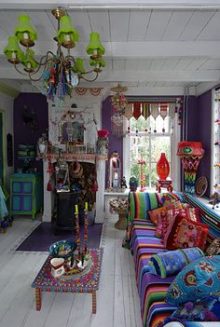 So the first thing to watch for in checking the energy flow in your home is the presence of long, straight lines that create a harsh quality of energy. More often than not, they will contribute to a considerable leakage of energy, as well as an unfriendly, cold feeling in a home.
So the first thing to watch for in checking the energy flow in your home is the presence of long, straight lines that create a harsh quality of energy. More often than not, they will contribute to a considerable leakage of energy, as well as an unfriendly, cold feeling in a home.
This is especially true if you have an opening, such as a door or a big window – at the end of the straight line.
The second thing to watch for is having blocked areas in your home, meaning areas where the energy just get drained, sucked in or pushed back. Stay with the image of water flowing into your space and ask yourself: “Would water encounter many blockages as soon as it enters my home?”
This can happen when you have a wall facing (and in very close proximity to) the front door, for example. In feng shui we call them blocking walls. This can also happen when you arrange the furniture in a way that blocks the energy from flowing smoothly into the room.
Other feng shui scenarios that can contribute to either the leakage or the blocking of a good Chi flow in your home are as follows:
- A Main Door or big window in Line with the Back Door
- A Mirror Facing the Main Door
- Stairs Facing the Main Door
Be sure to position your furniture in a way that allows for a smooth flow to all areas of your home and avoid any blockages and stagnant areas, such as cluttered closets, for example, as they tend to create bad feng shui energy (Si Chi).
A good flow of Chi will create good, healthy energy in your home.
Avoid Sha Chi and Keep Good Company
At any time during your living room decorating process, be sure there is no attacking energy – called Sha Chi in feng shui – pointing at areas where your and your family spend the most time. In your living room, Sha Chi is the attacking energy that can be created by sharp corners from furniture such as coffee tables or bookcases; architectural features such as the fireplace mantel or various decor elements such as big candleholders or modern lamp bases, for example.
To avoid the detrimental effects of Sha Chi, place your furniture pieces and major decor items so that no sharp energy is pointing directly at any seating areas (or play areas if you’ve created some in your living room for your kids).
Sharp objects, such as knives and swords, firearms and animal specimens, should not be hung on the wall because they will produce Yin and lead to quarrel or violence.
The living room should not be decorated with beast paintings but the paintings about flowers, plants, landscape or fishes, birds, horses, white cranes and other auspicious animals. However, if you prefer to tiger, eagle and other beasts, you should make the beast heading out to form a pattern of defense. Never make the beast heading inward, or you will be threatened and bring accidental disasters to your family.
Another aspect of bad feng shui energy is called Si Chi, which is basically low, sad, and depressing quality of energy. Hopefully, you will never have to deal with it! To prevent it from taking roots in your living room, be sure to use basic feng shui space clearing steps after a strong family argument, unpleasant guests, etc. Even better, make a habit of clearing the energy in your space regularly, this is easy to do and a pleasure to experience.
Here’s a how to: Clean and Clear
About Mirrors
Mirrors are the #1 feng shui decorating must for any living room and in any bagua area. Why? Well, mirrors are such multitaskers – they bring more light, make the space look and feel bigger, add beauty and dimension to any space.
Feng shui-wise, mirrors also bring the water feng shui element – the energy of calm, freshness, and renewal. Mirrors are also the bringers of abundance, so go find yourself a perfect mirror for your living room!
Just remember that the sofa should not have a mirror behind it. When you sit on the sofa, this will expose your head to others from the mirror, which is ominous. It is okay if the mirror is beside the sofa.
Plants
Feng shui is all about bringing the outside in, meaning replicating the vibrant and potent energy of nature in our own often poorly designed homes. If you can find a big beautiful plant that can thrive in your living room, know that this is excellent feng shui! If not, go for a small artistic grouping of several smaller plants.
Below is a list of top 10 air-purifying plants, as defined by NASA research in the early 1980s. Bring them to your home, bring them to your office, and let them do what they do best – clear the air and fill it with oxygen!
Areca Palm.
- Scientific Name: Chrysalidocarpus Lutescens
- Removes: All tested indoor air toxins.
- Benefits: Very popular and easy to care for plant.
Leaves have a gracious flow that will soften the energy of any home or office space.
Lady Palm
- Scientific Name: Rhapis Excelsa
- Removes: Most indoor pollutants.
- Benefits: One of the best plants to improve the indoor air quality.
Very popular and easy to care for.
Bamboo Palm
- Scientific Name: Chamaedorea Seifrizii
- Removes: Benzene, Trichloroethylene, Formaldehyde.
- Benefits: Most resistant to insect infestation.
Adds a peaceful, tropical feeling to any environment.
Rubber Plant
- Scientific Name: Ficus Robusta
- Removes: Most pollutants, especially formaldehyde.
- Benefits: Will survive in dim light and tolerate cool temperatures.
Excellent ability to remove toxins from any indoor environment.
Dracaena Janet Craig
- Scientific Name: Dracaena Deremensis Janet Craig
- Removes: Most pollutants, especially trichloroethylene.
Benefits: Best in Dracaenas family for removing home or office chemical toxins.
English Ivy
- Scientific Name: Hedera Helix
- Removes: Most pollutants, especially formaldehyde.
Benefits: Easy to grow, very adaptable, except for high temperatures.
Another hardy, very popular plant, often used in public spaces.
Dwarf Date Palm
- Scientific Name: Phoenix Roebelenii
- Removes: Most pollutants, especially xylene.
- Benefits: Can tolerate low levels of light.
A slow grower that can reach a height of about 5 to 6 feet.
Ficus Alii
- Scientific Name: Ficus Macleilandii “Alii”
- Removes: Most pollutants, especially formaldehyde.
- Benefits: Easier to care for than the Ficus Benjamina, can loose some leaves while adjusting to a new space.
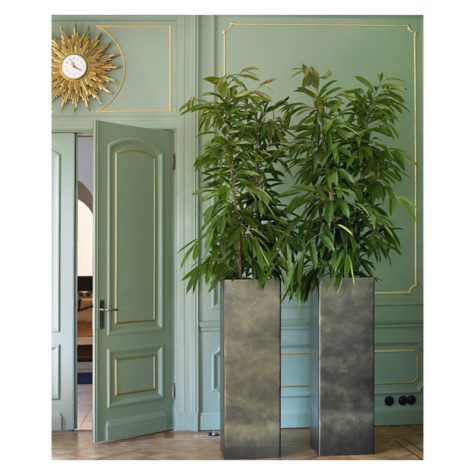 There are 3 types of Ficus Alii: the standard tree, the bush and the braids (several entwined trunks.)
There are 3 types of Ficus Alii: the standard tree, the bush and the braids (several entwined trunks.)
Boston Fern
- Scientific Name: Nephrolepis Exaltata “Bostoniensis”
- Removes: Most pollutants, especially formaldehyde.
- Benefits: Beautiful and lush, a favorite for any home or office.
It does require attention in order to thrive.
Peace Lily
- Scientific Name: Spathiphyllum sp.
- Removes: Alcohols and acetone, Trichloroethylene, Benzene and Formaldehyde.
- Benefits: Beautiful plant with gentle white flowers, easy to care for.
Strong and peaceful energy.
Lucky Bamboo
The lucky bamboo is one of the most popular feng shui cures for home or office. You can see quite a few types of feng shui lucky bamboo in most floral shops nowadays. However, the lucky bamboo in feng shui applications is often one of the most neglected feng shui cures, too.
I have seen countless of feng shui “lucky” bamboo plants that are struggling to survive, have a poor neglected look, and the only luck in them is the “lucky to be alive” factor!
Even though easy to care for and a very tolerant plant, the feng shui bamboo still needs your love and attention, as it likes to look good, just like you do. Do not be afraid to touch your lucky bamboo and take good care of it.
Ultimately, the feng shui lucky bamboo is considered lucky because of its peaceful vitality and strong growth, so it is best to learn to take really good care of it, just like you take care of all your other plants.
- So why is the feng shui lucky bamboo considered lucky?
Bamboo in itself is an amazing plant that brings a very peaceful and wise energy into your home. It teaches the ultimate wisdom: how to be flexible and hollow (open) on the inside so that the spirit can freely flow and heal your being.
If you are lucky enough to have bamboo growing in your garden, you know how soothing, almost transcendental, the sound of it is. The same is true for bamboo feng shui wind chimes, as well as the energy of bamboo floors.
Generally, here is why this specific feng shui cure is considered lucky; this will help you see if the feng shui lucky bamboo you bought at the corner store fits into this category.
A little indoor bamboo plant is considered lucky in feng shui when it combines/represents all five feng shui elements, as these elements are considered to be the foundation of a harmonious universe.
The five elements in feng shui are Water, Wood, Fire, Earth and Metal. Here’s how the feng shui elements are expressed in a lucky bamboo feng shui cure:
- WOOD: the bamboo plant expresses the feng shui Wood element (all plants do).
- EARTH: the rocks that create the foundation of growth for the lucky bamboo represent the Earth element.
- WATER: the water the bamboo needs for its vibrant growth is obviously representing the Water element.
- FIRE: the feng shui lucky bamboo plants usually have a red ribbon tied to them (red color is the expression of the Fire element).
- METAL: the glass pots that most lucky bamboo plants come with represent the Metal element. If your feng shui lucky bamboo is planted in a ceramic pot, it will usually have either a metal coin (Chinese coins for good luck), or a metal figurine, such as the Laughing Buddha.
The number of stalks in the lucky bamboo as a feng shui cure has a specific meaning that is taken into consideration when placing the lucky bamboo plant for good feng shui. You can sure have as many stalks as you feel will look good in your space, but generally, there are some guidelines to follow when you want to use the power of numbers for good feng shui.
Here are the most popular numbers of lucky bamboo stalks:
- 2 for Love and Marriage
- 3 for Happiness
- 5 for Health
- 8 for Wealth and Abundance
- 9 for Good Fortune.
Where should you place your feng shui lucky bamboo?
The best feng shui placement of your lucky bamboo plant is in your Wealth and Money or Health and Family bagua areas. If you are working with the classical feng shui bagua, these are the Southeast and East feng shui areas of your home.
Crystals
Crystals are the absolute darlings of feng shui, and I mean the natural rock crystals, untreated and unfaceted. There is such a variety of crystals out there, many of them really affordable; all waiting to adorn your living room.
Natural crystals bring the grounding energy of the earth feng shui element, much needed with our modern lifestyle.
Family Photos
Displaying happy family photos is great feng shui for your living room. It creates happy, warming energy that spreads throughout the home and uplifts your mood on occasional sad or stressful days. East area of your room is the best spot to display family photos but anywhere in your living room is still excellent feng shui.
Buddha
The serene and peaceful presence of Buddha can grace your home with more peace and real, meaningful moments. There are many Buddhas – from Kwan Yin to the Medicine Buddha, from White Tara to the Laughing Buddha.
There are also many specific Buddha mudras you can choose for your living room decor.
Fire and Passion
Fire is the element of passion, excitement, joy, warmth and love. It makes it easier to connect with your loved ones and truly enjoy their presence. A good and balanced fire feng shui element also helps you be genuinely present in this moment instead of being stuck in what happened a couple hours ago (or worrying about an imaginary future).
Be sure you find your own expressions of the fire feng shui element for your living room – be it with wall art, pillows, and throws or a beautiful rug.
- Candles
Candles purify the energy of negative residues, as well as make any room more calm and peaceful. They also bring a quiet sense of romance and joy, so be sure to grace your living room with a few candles in beautiful candleholders. Of course, candles are also the expression of the fire feng shui element – the element that many of us need to keep and nourish in our relationships with others (and ourselves, too).
By fire energy I mean a solid, nurturing, warm, life-giving fire energy – not the destructive, hollow and angry one. There is a fine balance with all your feng shui decor solutions – you just have to play and experiment until you find the right balance for your living room and for your family.
Other considerations
- Should be visible as soon as entering into the door.
The living room should be visible as soon as entering into the door. According to Feng Shui knowledge, if the living room is behind the bedroom or kitchen, your life will have no privacy, leading to digression and mistakes in work or business.
- Should be in the center of the house.
As a place for the whole family, the living room should be in the center of the house. If a bedroom is transformed from part of a spacious living room, the living room will be the worst one.
- Layout should be rectangle or square.
The overall layout of the living room should be a rectangle or a square rather than the irregular or polygonal spatial pattern. The square living room will improve your luck in terms of both blessing and wealth, and also make the infinite positive energy staying in the home.
- Wealth Direction
You should pay special attention to the wealth direction which is generally at the oblique 45℃ position facing the living room as soon as you enter into the door. The wealth direction should be tranquil and avoid a water dispenser, audio equipment and other shaking items, or your will have your wealth affected and suffer from financial loss.
- Furniture Placement
The furniture should be placed properly. According to Feng Shui knowledge, the storage cabinet in the living room should cling to the wall and the sofa should face the door or TV, and never have its back to the door.
If the sofa backs the door, your interpersonal relationship will be disharmonious and you may easily encounter villains or have disputes with others.
- Avoid Beamed Ceilings
If the living room has a spanning beam, the ceiling should be covered with decorations, or the beam will bring you the sense of pressure and bad luck and make you nervous.
Here’s a nice fix:
- Floor should be even.
The living room floor shall not be uneven; instead, it shall be flat and avoid too many too many stairs or the sense of high and low. Some living rooms adopt the design of high and low partition to make the obvious change of high and low floor. However, this kind of design makes the family luck full of ups and downs.
- Living Room and Doors
If you are sitting in the living room can see the doors of all rooms, the privacy will be poor and you may feel open to the external world.
- Decoration
The living room should be decorated with the circular-shaped decorations since it is a family and friends gathering place requiring the lively and harmonious atmosphere. The circle is a symbol of Yang and dynamic, so the circular-shaped lighting, ceiling and decorations can create the warm and lively atmosphere.
But wait, there’s more!
Here’s a small gallery of living rooms that I didn’t find a place for in the post. Enjoy!
Sources:
Bedroom Feng Shui
The bedroom is an obvious respite from a tiresome world for many reasons: It provides comfort, warmth and familiarity in the face of great stress, hard work and exhaustion.
While it’s certainly wonderful to have a room full of the furniture of your dreams, it’s even more important to address the feng shui characteristics of your bedroom. As pleasing as material items are, the placement of certain items, the colors and even the materials can make an enormous difference in the state of your life affairs.
Bedroom arrangements in feng shui embrace the primary function of your bedroom, which is to serve such activities as sleep, relaxation and sex. Feng shui principles incorporate the right elements and furniture placement to enhance your overall health and well being. These principles ensure the continued flow of chi energy through the balance of yin (female) and yang (male) energies.
Feng shui in the bedroom can bring new and unexpected harmony to life. The benefits range from the financial to the professional to the romantic.
The idea of a perfect feng shui bedroom may bring different images to different people, but they will all have one thing in common – pleasure and dreaming as the keywords. In a good feng shui bedroom, every item will reflect the clear intent for love, healing, and relaxation.
What do you think?
I collected a wide variety of beautiful images of some spectacular bedrooms. Beautiful as they are, most of them would definitely NOT give me a good nights sleep, or a feeling of security, safety and complete restfulness. Here they are. What do you think?
And now that I’ve completed the post and read all the feng shui information, I have a pretty pretty good idea as to why they don’t “feel” quite right for a cozy and comfortable night’s sleep.
What to Do
Your bed should be placed in the “command” position or far away from and unaligned with the door. The door should be visible from the bed. This placement encourages the natural flow of chi, which in turn promotes restfulness, sleep and motivation; all of which are conducive to a successful professional life.
Early to bed, early to rise and to enjoy the sunlight. Natural light is the ideal way to start the day, not only because it releases such positive energy, but also because it raises serotonin levels, which can make your workday more productive.
What Not to Do
Don’t place clutter of any kind, especially work-related items,underneath the bed. Any type of mess has its own unique, negative energy that can disturb everything from sleep to health.
Don’t place a desk in the bedroom. If this is unavoidable, then don’t pile the desk with paperwork, bills and other work or finance related items. If these items must be in the bedroom, use a fabric or a folding screen to separate the area from the rest of your bedroom, which should be your resting area.
3 Steps To A Good Feng Shui Bedroom
So you’ve heard a lot about creating good feng shui in your bedroom and you know that it is so very important to have good energy there, right? You might also be a bit skeptical about feng shui, or maybe intrigued but convinced that it’s impossible to create good feng shui in your bedroom.
Here come 3 easy steps (read: rules) to help you get an easy grasp on good bedroom feng shui and even enjoy it in your bedroom on a constant basis!
- Step 1 – Create A Good Energy Foundation
What does a good feng shui energy foundation mean? It is basically a set of building blocks on which all other good things can be created. There are several factors that make a good feng shui energy foundation in your bedroom.
- The first one is the abundance of fresh, clean air.
- Second is the quality of natural light.
- Followed by the “no clutter” rule and the “no electrical equipment” rule.
These are firm rules like “no computer in the bedroom” or “no cell phone close to the bed”, and definitely “no TV or exercise equipment in the bedroom”.
Why? Mainly because they create high EMFs for which you pay dearly (often without understanding why you are not feeling well). They also slowly but surely destroy all the goodness you want to have in your most intimate space – the energy of genuine love, deep connection and sexual healing.
Basics like keeping the window open for a fresh air flow, letting natural light in, not storing any clutter in your bedroom closets or under the bed have to become just that: basics that you do not think about, argue or make it hard to implement.
- Step 2 – Put Your Bed In The Best Spot
Find the best furniture layout with your bed in the so-called commanding position and/or facing one of your lucky feng shui directions.
Have access to your bed from both sides and have (no matter how small) nightstands on both sides of bed.
Be mindful not to have a mirror facing your bed or any sharp angles pointing at you while you sleep. Understand what makes a good feng shui bedroom layout and see if yours is close to having good feng shui.
If you feel like moving your furniture from time to time, this is perfectly fine, just be sure you know the best spots for your major furniture pieces. A good placement of furniture – especially your bed – in your bedroom will allow for a stable and harmonious flow of energy which every room needs (and more so a bed-room!)
- Step 3 – Beautiful Color and Decor
Beauty is like food, energy-wise. An ugly space can literally poison your energy, while a beautiful, harmonious one will elevate, nourish and heal you.
Do your best to create and maintain a sense of beauty in your bedroom and have only items that you love to be surrounded with.
Follow basic feng shui colour guidelines, such as the one that recommends earth colour tones as best colours for the bedroom (look at a wide range of colours: from deep chocolate browns to light sand colours), and be sure to add sensual, romantic touches in a fire feng shui element colour (red, pink, magenta, lavender or coral orange colours.)
Bring only art that makes you happy and inspired, use comfortable natural bedding and have either candles or dimmer switches to keep the energy soft and nourishing.
Your bedroom is the outward expression of your love for yourself, so start loving yourself more as love leads to all things good, no matter you are sharing your bedroom with a loved one or only with yourself.
Ultimately, love does not come from outside, but is rather an expression of your own ability to feel love. So express it more, as well as nourish and strengthen this expression with good feng shui in your space.
Good luck in creating an excellent feng shui bedroom!
To Encourage Career Growth
While the right design tips will go a long way in positively influencing your professional life, several elements and objects in particular encourage growth in this area. They include:
- Water:
Water has a powerful effect on career growth in feng shui. Its dual energy and serenity mirrors the very qualities necessary for a successful professional path. Despite that, its presence in the bedroom is generally frowned upon since it generates too much yin energy. Place a small table fountain or an elegant piece of artwork depicting water in your home office or North sector of your home, but never in the bedroom.
- Mirrors:
Mirrors are equally beneficial as they relate to careers and feng shui. However, they should not directly face the bed since they can drain your energy. Mirrors are also associated with the water element, which shouldn’t be placed in a bedroom. According feng shui guru Lillian Too, the purpose of mirrors is to reflect negative chi energy away from you.
- Colors:
Yellow is a stimulating color that easily keeps your brain focused, while green is exceptionally calming. Colors like red, purple and gold are heavily associated with wealth. However, these colors are dramatic and deep, and hence should not be used in abundance. Instead, use them as creative accent pieces for your bedroom’s gentle color scheme. Lampshades, candles and small trinkets are excellent items to touch with these brilliant hues.
- Other Considerations:
The key to success in both finance and career is to increase the amount of positive energy in your life. This can only be accomplished if your bed is stable and supported by a strong headboard to protect your personal chi as you sleep.
Placement of The Bed
While the aesthetic elements are the first things generally noticed in a bedroom, the most important feature is truly the position of the bed. As the largest piece of furniture in the room and the place where you rest, the bed is particularly important. The wrong placement can jeopardize your health.
- The ideal placement for your bed is diagonally across from the door. This placement gives you privacy and also allows you to see anyone entering your bedroom.
- Never place your bed directly across from the door. This placement puts you in a sleeping position where your feet point toward the door. This is known as the coffin position and is the worst possible position since it’s considered the position of death and is very inauspicious.
- Avoid placing your bed in front of or underneath a window since chi energy enters and leaves a room through the windows. If your bed is in this pathway, the chi energy will flow over you as you sleep, causing a restless sleep.
- Don’t place the mattress directly on the floor. This is very inauspicious since you’re in the main pathway of the chi energy.
- Floating beds look very appealing, but lack the feeling of support and safety. Choose bed frames with proper support so that you can feel more relaxed.
- Having a headboard against the wall gives you a subtle sense of security that’ll help you fall asleep easier. This has to do with our survival instincts and sense of security.
- Never place your bed on a wall shared by the bathroom, or kitchen.
Note: If the size or configuration of your room, especially window location, prevents you from following feng shui guidelines, then you can apply corrective feng shui cures and remedies.
One easy solution to inauspicious wall placements that cannot be avoided is to use a thick headboard for your bed, which acts as a buffer, and can minimize wanted noise that disturbs your sleep.
Additional Bedroom Furniture
Everything you place in your bedroom has a profound effect on the flow of chi energy. You want to ensure auspicious energy flows easily between the bedroom door and windows. By keeping this natural pathway free of clutter and large pieces of furniture, such as chairs and armoires, you’ll prevent stagnant chi and enhance all activities that take place inside your bedroom.
The bedroom is the most yin place in a home. Think of a comfy cave: dark, cozy, small. There should be a sense of enclosure, and freedom to move within it. Keeping that goal in mind, there are three main rules for your bedroom, which advise against:
- Placements that block natural pathways and doorways.
- Cluttering the bedroom with too much furniture.
- Placements that create poison arrows directed toward the bed.
Poison arrows are created whenever you place an armoire or dresser so that the sharp edge of the corner is angled directly at the bed.
If you can’t avoid placing furniture so that it create poison arrows, then you can remedy this by suspending a multi-faceted crystal ball from the ceiling so that it is between the poison arrow and the bed. Another solution is to use a runner for a a dresser to conceal and soften the corner edges.
Don’t place large furniture by your bed. Some people like putting large bookshelves right by the bed. It provides easy access to books for those who enjoy reading right before going to sleep.
Small bookshelves are fine. However, if you have bookshelves that are more than six feet (180 cm) tall, then you are better off without the bookshelf. The reason is that the large furniture can give you that invisible pressure that makes you feel oppressed. It’s similar to the feeling you get when you drive right next to a truck or when you’re standing right under a monumental structure.
You can place nightstands on either side of the bed; just be sure that the nightstand isn’t higher than the mattress, since this creates a poison arrow targeting the bed. Chairs and other pieces of furniture should also be set in the bedroom according to the same guidelines.
If your armoire doors have mirror insets, then you want to place it where it doesn’t reflect the bed. If this is unavoidable, then you need to cover the mirrors when sleeping.
Mirrors
Mirrors can be used in a bedroom, but with great discretion. There are placements you want to avoid such as placing a mirror directly across or over a bed. You simply don’t want to reflect the bed in a mirror. This invites a third party into your marriage or relationship and results in infidelity. Some practitioners believe that a mirror can also startle the soul when it steps from the body for its nightly astral travels.
If you must place your bed so you don’t have direct line of sight of the bedroom door, you can place a mirror so that you can see the door from the bed, just be sure not the mirror doesn’t reflect the bed.
Clutter
To create chi balance, you must first rid your bedroom of all clutter and work-related equipment. Dirt and dust create stagnant chi which can result in such things as illness, disharmony within your relationships and loss of wealth.
One of the biggest stress producers in most of our homes is… CLUTTER! Even if you consider yourself a hopeless clutterbug, give yourself the gift of creating a clear and clean sanctuary in your bedroom. Be ruthless!
Fresh Air
Open the windows often or use a good quality air-purifier to keep the air in your bedroom fresh and full of oxygen.
Be mindful of the quality of air in your bedroom. You cannot have good feng shui in your bedroom if the air you breathe in is stale and full of pollutants. Please note, though, that plants in the bedroom are not good feng shui unless your bedroom is fairly large and the plants are located far from the bed.
- Essential Oils
Essential oils can also help you purify the air in your bedroom, but be sure to choose actual essential oils (they have healing properties) vs fragrance oils (which are mostly toxic).
If you are new to the world of essential oils, you can first look into the basic properties of most popular essential oils and choose which ones you would like to use in your home. There are many essential oils that are easy to love and use, lavender is certainly the number one essential oil because of its versatility and wide array of healing properties.
Your bedroom, for example, will definitely benefit from soothing sensual scents of lavender, rose, ylang ylang, or jasmine, while a home office can improve its energy with a good dose of peppermint, clary sage, or lemongrass in the air. I love diffusing a mixture of eucalyptus, peppermint, and some citrus oils (tangerine, grapefruit or orange) in my office space, especially in colder season when I cannot have the windows wide open.
Once you have made your choice of pure essential oils for feng shui purposes, how do you actually use them?
Spraying an essential oil mix into the air is the easiest, quickest way to change the quality of energy around you. There is a variety of essential oil mists on the market – from love energy mists with soothing, sensual oils to travel jet lag mists to help strengthen your immune system.
If you want to make your own mix, all you need is a spray bottle, preferably glass. Next, fill the bottle with pure water and add several drops of essential oil. Shake it and test it, see if you like the scent, then maybe add a couple more drops.
The easy to follow guideline is 8-10 drops of your favorite essential oils to 8 oz water (I always tend to make it more concentrated, though, but it depends on the oils I am using). Experiment and find the right ratio for you. Making your own essential oils air spray is really easy, and you can just use it in your space as needed.
Desks and Work Spaces
Work and sleep don’t mix, so don’t place a desk in your bedroom. This is a poor idea for a feng shui optimized bedroom. For good health and rest, keep your work separate from this rest area.
If your bedroom must also double as a work space, then select furniture such as secretary or other cabinet style desk that can be closed and out of sight when not being used. If you live in a small space, you can try dividing your work area and your bed with a curtain.
Electronics and Television
Electronics are out, too. They contribute electrical currents to the room that can disrupt your sleep.
Most feng shui experts believe that all electronics should be banned from the bedroom. “I want to say a special word here about televisions. Get it out of the bedroom! You’re inviting strangers into your bedroom every time you turn the TV on, bringing that often harsh outer world into your private chamber. Perhaps more importantly, you are distracting yourselves from each other.”
In a practical world, televisions and laptops are often a necessary evil in your sacred bedroom space. It’s impossible to get away from technology, so a compromise solution is to place your TV in an armoire or other cabinet that can be closed when you’re finished watching TV for the night. Close your laptop when not being used and store inside a night stand or drawer. That way they are at least out of sight and your space while you rest.
Some say that TV has a similar effect as a mirror, however, most of us use LCD’s now, and I can hardly see any reflections from that. So I don’t think the mirror-effect applies anymore.
Though some claim that TV helps them sleep, the light and sound from the TV are actually causing us to stay awake longer than needed. The light from the TV is a form of artificial light that has the tendency to keep us awake by delaying the release of sleep-inducing hormone, melatonin. Further, whatever show or movie that you’re watching can also invoke strong emotions that’ll keep you awake longer than usual.
Some experts also mentioned that electronics in the bedroom, such as TV, brings electromagnetic field that can potentially harm us. I’m not sure how it affects our sleep, but I do know that strong electric currents create strong electromagnetic fields that can cause many health consequences, which is why you shouldn’t live close to power lines.
Color Matters
You can decorate the bedroom walls in color, texture, patterns and artwork. You can use feng shui compass directions to aid you in color selection. Choose colors that are restful. Soft colors like cream, peach, and pale pink are good choices. A soft yellow is considered particularly beneficial. Blues are nice.
The best feng shui bedroom colors for are considered the so-called “skin colors”, and we know the colors of human skin vary from pale white to rich chocolate brown. Choose colors within this range that will work best for your bedroom decor.
Avoid vibrant colors as the main theme of your bedroom. These colors include bright orange, pink, and yellow, and they are not suitable for your bed linens, curtains, and your bedroom walls.
Brighter colors tend to shout out at you, which can amplify your emotions and give you more energy. They also reflect more light, which is known to disrupt your biological clock and keep you awake. If you desire to use bright colors, you may need to dim down the bedroom lights to balance out the brightness. Another method is to use the bright colors as accents rather than the main theme.
Color is usually used to enhance a particular kind of energy (element), or to balance the yin/yang relationship. Some feng shui consultants work with color a lot, others not so much, saying that there are more powerful ways to affect the energies. Personally, I love color and use it a lot because it can have a tremendous impact on how we feel in a space.
Choosing Art For The Bedroom
Choose your bedroom art wisely, as images carry powerful energy. The best feng shui advice for choosing bedroom art is to choose images that you want to see happening in your life; images with nourishing, happy and beautiful energy. Unless you enjoy being sad and lonely, do not use sad and lonely images in your bedroom.
Best art for the bedroom are images related to the emotions of love, happy relationships, body healing, and intimacy.When you select wall art for your bedroom, choose subjects that are happy and restful. Nature images and themes in twos, such as two mandarin ducks, swans, or peach blossoms, promote romance and a relaxing atmosphere.
Humans have an amazing ability to recognize faces and familiar patterns. It is suggested that you remove animal heads (hunting trophies), pictures of faces, and other odd decors from the bedroom, because they can keep you distracted and awake.
Being surrounded with unpleasant images, such as pictures depicting violence or sorrow, can invoke strong emotions that can keep you awake at night. Worse, these emotions can carry over to your dream, making you wake up tired the next day.
If you have any pictures that invokes strong emotions, remove them. Pictures that soothe and relax you are more suitable for the bedroom.
The Ceiling
If you have a choice, avoid putting your bedroom in rooms with sloping roofs and or low ceilings. Low ceilings give an invisible pressure that makes most people feel uneasy. The same is true with slanted or sloped ceilings.
Though the feeling is very subtle, it does give you some sort of unease or feelings of being compressed (worse for claustrophobics), and those feelings carry over whenever you go to bed. This is especially true if you sleep on the side with the lower ceiling. An easy solution is to use a canopy bed. The four pillars that surround you while you sleep have the tendency to make you feel more “supported” from the downward pressure of the ceiling.
A canopy can also provide protection from other negative ceiling elements, like bright light fixtures, a bathroom on the floor directly above you, and a ceiling fan.
Avoid placing your bed directly beneath exposed beams. Just like the sloped or slanted ceilings, sleeping under a beam can also give you a subtle feeling of unease. Beams give you discomfort because it is similar to having a sharp object pointed at you. Also, they can give you a feeling that your space is being chopped up, which can be highly distracting.
The size and shape of the beam, as well as the height of the ceiling, can all play a role on how much discomfort you feel. The easy cure to this is to use a canopy bed. Or you can add a pair of flutes with red ribbons at an angle so the open end is pointing upwards along the overhead beam.
If you have anything hanging right above your bed, such as a chandelier, you will get that same feeling of discomfort because you may not feel 100% safe, and the effects are worse if it is hanging right above your head. The cure is to remove that furniture and place it somewhere else, like right above a dining table, where people will not reside right under it.
- Here’s a nice little gallery of cool canopy beds:
Lights and Lighting
Have several levels of lighting in your bedroom, or use a dimmer switch to adjust the energy accordingly. Good, appropriate lighting is very important, as light is our #1 nutrient and one of the strongest manifestation of energy.
Candles are the best feng shui bedroom lighting, as they not only clear the energy but also create a very intimate, warm and healing atmosphere. When buying candles, check to be sure your candles are toxin-free.
Avoid using harsh overhead lighting. Bright lights keep us awake and can disrupt our sleep pattern. It is true even with artificial lights and especially true for LED lights, which is known to create “light pollution” that causes sleepless nights (this is also the reason why it’s bad feng shui to sleep with your head under a window).
Try to use dim lights with a soothing color, as it can provide the atmosphere and environment as you are getting ready for bed.
Even a little bit of lighting can disrupt your sleep, simply because light can penetrate our eyelids and influence our biological clock.
You are in complete control of the lights in your bedroom. However, you have little or no control of the lights outside of your home. That is why you need blinds and curtains that can completely block out the light from the outside. If your current blinds or curtains have light shining through the cracks at night, it may be worthy to invest in double layered curtains to improve your sleep sleep.
Plants and Greenery
Remove the plants from the bedroom. Plants have an “evening complex” where they grow taller at night. The vibrant growth energy gives off quite the opposite energy you want when you’re asleep.
Also, most plants release more carbon dioxide than oxygen at night. Carbon dioxide has the ability to affect your sleep quality, and is another reason why plants should not be in your bedroom.
Cures and Elements
You can activate various areas in your life by placing feng shui elements and object in your bedroom. For example, you can activate your wealth area in the southeast sector of your bedroom by placing three metal Chinese coins tied together with red ribbon. Improve or enhance your marriage or relationship with a carved pair of rose quartz mandarin ducks on your nightstand.
Bedroom Location
The ideal location of your bedroom is far from any doors that open to the outside world. For this reason, it’s best if your bedrooms are located at the back end of the house, or or at the opposite end from the street.
The main reason is that bedrooms at the back-end are usually much more quiet. Your sleep is less likely to be disrupted from the sound and movement of anything that roams in front of the house, which includes both human and automobile traffic. Because of this, you will also enjoy higher levels of privacy.
If possible avoid placing your bedrooms at the top of the garage. When your bedroom is on top of a garage, your sleep can be disrupted by a variety of factors, including the smell of car exhaust, noise from garage door movements, insects that creeps into your bedroom, and warmer bedroom temperatures. If these four factors are non-existent, this bedroom location should be fine.
Avoid bedrooms under highly active areas. Active areas can include restrooms, entertainment rooms, or other areas where humans are active instead of sleeping peacefully. This usually does not apply to apartments and high-rises, because the bedroom is likely below another bedroom, and the flooring is usually thick and sound-proof.
However, single family homes are a different story. If your bedroom is right under a restroom, your sleep can be interrupted whenever someone flushes the toilet. Or, if you live right under a room of a teenager who has a different sleep schedule, their movements, music, or other activities can keep you awake all night.
Some say that sleeping above the kitchen stove brings bad energy that disturbs sleep and creates health issues.
Bigger Isn’t Better
Don’t oversize your bedroom. If your bedroom is too large, you may wake up tired even if you get a full eight hours of sleep. Some people feel find it hard to fully relax in extremely large bedrooms.
This could be our survival instincts at play. We are most vulnerable when we’re sleeping, and with a larger space, we may feel less in control of our surroundings, causing us to sleep on high alert rather than fully relaxed.
Open vs Closed
Keep all bedroom doors closed at night, be it the closet doors, the en-suite bathroom door or the bedroom door. This will allow for the best and most nourishing flow of energy to strengthen your health, as well as the health of your relationship.
Keeping your bedroom closet clean and organized will further create a sense of peace and calm in your bedroom. Understand the interaction between the doors and windows in your bedroom and be sure the energy is not escaping your bedroom, but rather nourishes and strengthens it.
- Close the window when you sleep
This is mainly true if you live in an urban area, or if the bedroom is facing the street or other potential sources of noise or outside odors. If you live in a rural environment, or if the bedroom is completely private and well protected, an open window might be just fine, providing fresh air and soothing night sounds and scents.
- Open the Window During the Day
After a full night’s sleep, your bedroom is filled with your own carbon dioxide. To refresh the air quality in your bedroom, make it a habit to open the window right after you wake up. This way, your bedroom will feel more nurturing during the night.
Carbon dioxide is known to adversely affect the quality of your sleep. So even if you live in a region with extreme cold or hot weather, try to keep your window fully open for at least a couple of hours during the day to recycle your bedroom’s air.
- Close your bathroom doors
Many homes have a bathroom attached to the master bedroom. If possible, it’s best to keep the door between them closed at night.
- Close the Bedroom Door
Closing the bedroom door increases your sense of privacy, especially if you live with family members. It can also provide you with a feeling of security, which can further relax your survival instincts to assist you with your sleep.
Closing the bedroom door also cancels out the noise from within your home. These sounds include the humming of the refrigerator or other home electronics, and the noise from your family members or roommates living with you.
Tips and Tricks
- A solid headboard will ensure you have a sound restive sleep since it serves as a wall to insulate you from the outside world.
- Don’t crowd your bedroom with items that don’t belong there.
- Keep clothing neatly in drawers and closets.
- Routinely clean underneath dressers and beds.
- Don’t store things underneath dressers or beds.
- Don’t use your bedroom as a storage area.
- Never place water features or paintings of water scenes in a bedroom. This provides too much yang energy and creates a restless sleep.
- Never place live plants in your bedroom since these stimulate and attract too much yang energy.
- Use subdued, indirect lighting, like that provided by table and floor lamps.
- Remedy any poison arrows created by sharp angles of furniture with multi-faceted crystals or rearrangement of furniture.
- Avoid open bookshelves; books create poison arrow effect. Remedy by adding either glass or wood doors.
But wait! There’s More!
Here is another collection of cool bedroom ideas:
Sources:
Kitchen Feng Shui
Your kitchen is the feng shui part of the home that nourishes and sustains life. Feng shui-wise, it is the most important part of your home. The kitchen is also a feng shui symbol of wealth and prosperity. This is why one of the first rules for good kitchen feng shui is to avoid having your kitchen close to the front door or to the back door, where the chi (good energy) can easily escape.
- We all know that the food we eat gives us energy.
For this energy to be of high and healing quality, the food needs to be prepared in a harmonious and well-organized kitchen; a kitchen that has a balanced flow of Sheng Chi, or good feng shui energy.
Good nutrition is good feng shui, so add healthy, organic foods to your diet, especially fresh fruits and vegetables. Besides the high nutritional value, organic fruits and vegetables carry strong healing vibrations from the earth; a quality of energy that your body dearly needs.
As we constantly exchange energy with our surroundings, a good feng shui kitchen leads to a good spirited chef, which, in turn, leads to good energy meals for a happy family!
Here are a few more basic good feng shui kitchen guidelines:
- The kitchen should have several levels of proper lighting, be airy and spacious, clean, bright and welcoming.
- For good feng shui, keep the kitchen simple and do not overload it with gadgets.
- Keep clutter at bay.
- Fresh flowers bring beautiful uplifting energy to your kitchen. Place a bowl with fruits, a vase of flowers, or a living plant on your kitchen table, windowsill, or wherever the layout of your kitchen allows.
Choose colors that blend well and feel good together. Feng shui-wise, the color yellow is a good choice for the kitchen, as it is good for your digestion. You can choose this color as light as “butter yellow” or as vibrant and strong as “squash yellow.”
The kitchen was considered to be the heart of the home since ancient times; use feng shui to make it a happy and healthy heart! Follow these simple feng shui tips and create a home where family and friends continue to share many beautiful moments together.
Even if your current kitchen is in a challenging feng shui location, you can still do your best by applying basic feng shui tips, as well as constantly creating good, fresh and vibrant energy full of love and care.
This good energy you create in your kitchen will come back to you tenfold, so it is an excellent investment in your health and well-being!
The location, design and feng shui basics of your kitchen are all considered very important in a good feng shui floor plan. In fact, your kitchen is part of the so-called “feng shui trinity” – the bedroom, the bathroom and the kitchen – because of its utmost importance for your health and well-being.
Location.. Location… Location…
So, what is the best feng shui positioning of a kitchen in a good floor plan and what is the worst one?
The worst feng shui positioning of a kitchen is the one where the kitchen is close to the front door and is the first view you see as you come in. Please note this does not apply to a kitchen further away from the door that you can partially see from the front entrance; this only applies to a floor plan where you literally come home through a kitchen.
Even in this case, there are better and worse scenarios. An oven that you can see from the front door, or aligned with the front door, is considered very bad feng shui. It is a bit better if you see a nice view of your kitchen, let’s say a kitchen island with some flowers on in, or a little herb garden for good feng shui.
Another bad feng shui floor plan kitchen location is a kitchen either under the bathroom or facing the bathroom door (a bathroom door in proximity to the oven or kitchen island is the worst).
The reasons here are plain common sense – the two energies should be kept apart and never mixed.
The last bad feng shui kitchen location is a kitchen very close to the staircase – these two energies are opposite each other and are best kept at a distance.
Moderately challenging kitchen locations are a kitchen very close to the laundry room or the garage, but these scenarios are much easier to work with and improve.
There are several elements that are important in the actual design of the kitchen. The designer triangle principle – where the oven, the fridge, and the sink form a triangle – is good feng shui and well-known to many. Less known, but very important feng shui factor is to avoid having your oven positioned in the way where you cook with your back to the door.
- How important is the stove or oven mouth direction for feng shui?
An important feng shui point regarding the stove location and positioning is to have the stove placed in a way that allows you to have a good view of your kitchen. Cooking with your back to the incoming flow of energy is not good feng shui.
Unless you can actually change the location of your stove, let’s say if you plan to use feng shui in renovating your kitchen soon, I would suggest not worrying about the direction of the oven mouth.
The first and most important aspect in feng shui regarding the stove is its location in the bagua map of your home.
As the stove represents the fire feng shui element, it is best to have it in a location that is compatible with or is not damaged by its fire energy. Usually, South and Southwest are considered ideal feng shui spots for the oven.
- When a kitchen door faces the bathroom door:
Having the kitchen and the bathroom doors face each other is considered very bad feng shui, indeed. One does not need to know much about feng shui to intuitively understand that this is not a good set-up for a healthy home.
When two doors are opposite each other, the feng shui energies flow very fast in and out of the spaces that are guarded by the doors. This is why another direct door alignment – the front door aligned with the back door – is also considered bad feng shui.
What you have in the case of a bathroom door facing the kitchen door is the energies of the bathroom (release, purification, letting go, etc) mingling with the precious energies of the kitchen (nourishment, cooking, warmth, love & support).
In practical terms, you have the undesirable odors from the bathroom affecting the energy of the kitchen, which is the heart of the home. In more complex terms, you also have the energies of the water feng shui element of the bathroom going against the fire feng shui element of the kitchen.
It will be harder to maintain optimum health and loving communication levels in a house with this set-up, but it does not mean you cannot do your best to even slightly improve the situation.
Your goal is to create as much division as possible between the kitchen and the bathroom, and here are 5 simple feng shui tips to consider if you cannot move out or plan a renovation.
- Always keep the bathroom door closed. This will help keep its energies from spreading into the whole home, and especially into the kitchen.
- Be sure your bathroom is always clean and a pleasure to be in, meaning it has really good feng shui energy.
- Find a creative way to define the boundary between the bathroom and the kitchen. For example, you can experiment with a divider screen, a tall plant or a bamboo curtain (if your kitchen has an open entryway) or have doors with no glass (if the kitchen doors have glass inserts).
- Choose different wall paint color on the two opposing walls — the kitchen door wall and the bathroom door wall. This can work well to define and energetically separate the two areas.
- Creating a focal point in between the two areas will draw the energies away from mingling and bring a sense of beauty. Work with big scale art and choose colors and images according to the feng shui bagua requirements for each specific area.
Once you understand what needs to be done and experiment with various solutions, you might find many more ways to improve your current situation.
If you own a home, look into the possibility of at least a minor renovation to remedy this situation. And, if you rent, you will sure be wise to avoid this set-up again! Understanding what makes a good feng shui floor plan and what is the best placement of all rooms in the house can help you make good decisions in the future.
If your kitchen is very small
The kitchen is considered the heart of the home not only in feng shui, but in many, if not all, old cultures. Feng shui wisdom adds the element of the state of your kitchen reflecting the state of your health; as well as attracting the flow of wealth and abundance into your life.
The kitchen is also a part of the very important feng shui triangle – the bedroom, the bathroom and the kitchen – which is directly connected to the state of your health and well-being.
What do you do, though, when your kitchen is very small and it seems like you can never keep it clean or find enough space for all your kitchen supplies?
If you have a difficult time with people putting things away and keeping it clutter free, it may mean that you have more items than your kitchen can accommodate.
Decide on the very minimum you can get away with and have “a place for everything and everything in its place”. I know this is much easier said than done, but see if you can pack some items away to improve the feng shui energy of your kitchen.
One feng shui decor element that usually works for a small kitchen is, strangely enough, to have some open display shelving. This little feng shui trick opens up a small, confined space and lightens the energy by creating a better flow.
Of course, with this comes the added issue of keeping the open shelves clutter free. It is good to know, though, that for good feng shui your whole space has to be clutter-free, be it visible or not.
You can also consider repainting the wood cupboards in a lighter color, such as white or pale butter yellow , whichever color works best with all the other elements in your kitchen (the countertops, the floors, etc.)
With a small kitchen smart lighting becomes crucial, so be sure to not limit yourself to one boring, energy draining typical ceiling fixture. Experiment with different levels of lighting and sense the change in energy each one of them brings. For a space to have a better quality of energy, at least 2-3 layers of lighting are recommended; this is especially important for a small kitchen.
Mirrors, of course, are one of the best feng shui solutions for small spaces and are sure called the aspirin of feng shui for a good reason! Find a way to place a mirror in your kitchen so that it brings more light and visually expands the space.
Be sure to also have some fresh energy in your small kitchen, be it a small container garden with aromatic herbs, or just some fresh fruits on display.
Most of all, keep it clean and keep it simple, and find many ways to fall in love with your very small kitchen. It is definitely possible.
Feng Shui of Kitchen Plates Shapes and Colors
Round is the feng shui shape with the most flow, or harmonious movement. This is not to say that square shaped plates are bad feng shui, not at all, just different energy, slower, more grounding.
- What colors and shapes of plates should I use in my kitchen for good feng shui?
- What plates should I use in my kitchen for good feng shui?
- Are round dishes better feng shui than the square ones?
- What color is best feng shui for plates, or does it depend on the kitchen location?
This is an interesting kitchen feng shui question, but I have to start with this: there are really no shoulds in good and successful feng shui applications.
It is always best to go with what you love and are drawn to.
This especially applies to your kitchen and your bedroom, as both places, feng shui-wise, are directly connected to your well-being; and only you know what makes you feel happy and nourished. Start with your own preferences, then see how they compare with the general feng shui guidelines.
In the course of understanding deeper levels of feng shui, you may feel drawn to make subtle (or not so subtle!) adjustments to your feng shui choices, but first always be guided by your feelings.
So, to answer your question with another question I would ask: “What plates do you like the most in your kitchen? What colors are you drawn to the most while dining?”
Personally, I use white plates, mostly round ones. I think white color it is the best energy foundation for the beauty and nourishment of the food that is served on these plates. You will also notice that good restaurants always use white plates.
To me, a clean white plate is like a fresh canvas waiting for the next masterpiece.
Round is the shape that has the most flow or harmonious movement, thus a fresh energy most suited to maintain, present and enjoy food. This is not to say that square shaped plates are bad feng shui, just a different energy that is slower and more grounding.
I guess one could say that square shaped plates make you slow down more.
Color-wise, I would say the best choice would be based on your personal preference, unless you have a big collection of dishes on display. In this case, you would like to have colors appropriate for your kitchen decor scheme, as well as for the bagua area the kitchen is located in.
Generally, blue is a good color for dishes when one is trying to lose weight; while red, orange and yellow will stimulate the appetite.
Herb Garden Tips for Feng Shui Kitchens
If you love your fresh herbs, I know you will find the best feng shui spot for the little herb garden in your kitchen. Best containers are of the earth feng shui element – try to avoid metal or plastic containers.
One of my most favorite ways to create great energy in my kitchen is with aromatic herbs.
Creating your own little herb gardens can be a really enjoyable process with numerous benefits. I enjoy cooking, so the smell of fresh herbs in the kitchen is heaven for me (great feng shui!)
I love the energy that fresh herbs bring into the kitchen.
Basil, rosemary, thyme, mint and lavender are my all-time favorites, but I also try to include something new every year. Check the 5 best herbs for a cook’s container garden for some great tips.
The vibrant, alive energy of herbs connects you to what matters the most – the simple, the good things in life. It’s a reminder of the nourishing power of the earth in all its beauty.
Growing Herbs in the Kitchen
If you want to enjoy a continuous supply of garden-fresh herbs in your own kitchen, keep these tips in mind.
- Choose plants carefully.
Opt for small-leaved herb varieties when possible, as they do the best indoors. In basil, for instance, you’ll find Fino verde, which has half-inch leaves. Some herbs naturally have small foliage, like oregano.
- Where to get the plants?
Buy established herb plants in the nursery or via mail-order, or grow your own from seeds or cuttings. You can grow basil year-round by periodically letting older plants go to seed and then scattering the seeds in the pot. To grow mint, use root cuttings.
Start herbs from seed in a soil-less potting mix in a warm location. Hasten germination and get the plants off to a good start by growing them on a seedling heat mat. Once the herbs reach two inches high, take them off the heat and repot them in regular potting soil.
- Provide plenty of light.
Most herbs grow best in a bright location, such as near an unobstructed southern window. Eastern and northern windows can also work, if you provide supplemental light from full-spectrum lighting. Western windows receive afternoon sun, but get warm and may burn foliage, especially in the summer months.
If your kitchen is windowless, grow herbs in a hydroponic growing system that comes with its own special lighting.
- Ensure air-circulation and cool conditions.
Herbs grown in stuffy, warm rooms attract pests like scale insects and mealybugs, and they grow weak and spindly.
“Herbs don’t like it warm in winter, even if you do, so place them in cool areas, such as on windowsills,” says Denise Schreiber, greenhouse manager for Allegheny County Parks in Pittsburgh and author of Eat Your Roses. “Air circulation is also necessary,” she says. “Locate the herbs near an overhead fan or in an area of the kitchen that receives air movement from another room.” Cracking windows open occasionally also helps.
- Watch watering.
Avoid overwatering your indoor herb garden or letting pots sit in trays of water, as soggy soil will quickly lead to root rot. Water when the first inch of soil dries out.
- Rotate often.
Leggy, weak growth is a common problem with indoor herbs. Help ensure they grow straight and strong by rotating the plants once a week so that all sides receive adequate light.
- Fertilize monthly.
Keep your herbs growing healthy and strong by feeding them on a regular basis with a half-strength solution of a well-balanced, liquid fertilizer, such as a 15-15-15.
- Prune regularly.
Fortunately for your cooking, herbs require frequent pinching for the plants to stay bushy and healthy, so make sure to prune often. The more you pinch, the more the herbs will grow, and the tastier your cooking will be.
- A Few Helpful Growing Tips
When buying herbs for indoor growth, it’s best to purchase plants that haven’t already been growing outside. The shock of bringing them indoors can cause trauma and affect growth and production. Remember that winter is a natural resting phase for plants, so it’s unrealistic to expect abundant growth. Try minimal watering and let them do their thing. Clipping them regularly will promote further growth so clip away—remember, you’re growing them to use!
A common mistake is to plant all herbs in one container. This inhibits growth and in the case of an invasive herb, you’ll likely witness an herbal blitzkrieg in your container, so plant each herb in its own container. Containers should have ample drainage holes in the bottom and since herbs can be susceptible to fungus, allow them to breathe by using terracotta pots, no smaller than six inches in diameter. To allow further ventilation, place pots in a container of small pebbles.
Always use a high-quality organic potting soil that contains vermiculite or perlite for adequate drainage. Avoid using soil from the outside, as it contains organisms that are controlled by the outdoor environment. Rosemary, thyme, and basil prefer soil with more lime, so adding a spoonful of crushed eggshells to the soil is beneficial. Though herbs are hearty, they do like to be fed once in a while—especially when growing in limited pot space. Herbs are grown for their leaves not for their flowers, so any fertilizer you give them should promote leaf growth, not blooms. One of the easiest ways to feed your herbs is to add one tablespoon of fish emulsion to a gallon of water and use this every time you water.
Water the herbs at the base, where the stem meets the soil—don’t water the leaves. Water once and let the water drain completely through, then repeat. How often your herbs need to be watered is a matter of watching and learning to read each individual plant. A good rule of thumb is to let the soil dry between waterings. Remember, one of the biggest mistakes in watering herbs is over-watering them; herbs don’t require as much water as a typical houseplant. If you see leaves turning yellow, this is the first sign of over-watering.
If your herbs require supplemental light, clamp-on reflector lights with fluorescent bulbs work best. Clamp the lights to the pot, four to six inches away from the plant. If you see brown spots on the plant, this is a sign of burning and the lights either could be too close or may have been used for too long.
With winter approaching, there’s no need to go without fresh ingredients for warm stews, soups, and herbed crusts and breads. And now is the right time to start growing herbs for any Thanksgiving cooking you may have in store. With minimal space and perhaps some artificial light, a winter garden could provide plenty of fresh winter fare.
The Easiest Herbs to Grow Indoors
If you love your fresh herbs, I know you will find the best feng shui spot for the little herb garden in your kitchen. Be mindful of the containers you use – the best containers are made of earthenware and bring the earth feng shui element; try to avoid metal or plastic containers.
Good luck in creating an aromatic herb garden in your very own kitchen!
- Lemongrass
Technically, you don’t even grow lemongrass, in that it’s not planted in soil, making this one incredibly easy herb to keep in the house. When buying a stalk at your local market, look for plenty of stem and make sure the base is intact. Trim the top and place the stalk in a couple inches of water. The stalk will produce roots and dozens of new shoots.
- Chives
These are one of the easiest herbs to grow indoors, as they do not require much light and are prolific in their production. Chives are easiest to start from an already-established plant. Just pull up a bunch from the established plant (including the roots), place it in a small pot half-full of potting soil, then cover the roots up to the crowns with more potting soil. Cut about one-third of growth off the top to stimulate new growth.
- Mint
Both spearmint and peppermint literally grow like weeds. They’re both very hearty and very invasive, meaning that they can quickly choke out other herbs. Keep in mind that a lot of spearmint is required to produce the same minty effect as peppermint, so if you’re growing it indoors, where space is limited and harvesting is frequent, peppermint is the better option. Start your peppermint plant with seeds—not root or leaf cuttings—in a small pot full of potting soil. Peppermint will thrive in shade, but make sure it’s in a spot where it gets at least a little bit of light each day.
- Parsley
Parsley is one of the most commonly used herbs and is very easy to grow, though the seeds can be difficult to germinate and may take up to two weeks to see results. The good news is it doesn’t require much light or maintenance once you get it started. Keep in mind, though, that this plant is a fairly slow grower, so initial clippings will not harvest a lot.
- Vietnamese Coriander
Coriander is the seed of the cilantro herb. This particular version of coriander is easier to grow than regular coriander, as it’s very hearty and very reliable.
- Oregano
The Greek variety of oregano is easiest to grow; however all oregano requires six to eight hours of sunlight per day, so a well-lit window—particularly one with southwestern sun exposure—is best.
- Thyme
This is another herb that requires six to eight hours of sunlight per day, and it may even need supplemental light. My favorite is lemon thyme, which can be used in place of regular thyme and has a unique citrus-like flavor and isn’t nearly as easy to find as other varieties in stores.
- Rosemary
This herb is very easily over-watered. It prefers to remain on the dry side and does not need particularly rich soil. Several varieties are available; some are bush-like and some are more of a creeping plant. Choose an upright variety like Tuscan Blue or Blue Spire. These will remain more compact, making them a better choice for indoor growing.
- Basil
This is a favorite to use when cooking. However, this herb is one of the most difficult to grow, especially indoors during the winter months. The best varieties for indoor growth are the Spicy Globe or African Blue. The African blue won’t have the wide, bright-green leaves you may be used to seeing in grocery stores; it’s similar to Thai basil with its narrower leaves and bluish-purple stalks.
A gallery of ideas:
Here are a bunch of ideas for nifty kitchen garden containers:
How Can I Feel the Feng Shui Energy?
Good feng shui energy is all around you, it comes in all forms, shapes, and sizes. Basically, you can test the quality of any given energy by the way it feels. You know the feng shui energy is good when you test it with the basic question: does it feel good?
A room does not necessarily have to look perfect in order to have good feng shui energy. No amount of wind chimes, fountains or lucky bamboo plants will bring good energy if the overall good feel of the room is missing.
Creating Good Energy In The Kitchen
Now let’s focus on your kitchen, as this is an ultra important space for your home, as well as for your own well-being, of course! A house with a happy kitchen is a happy house indeed! The kitchen was always considered the heart of the home in all ancient cultures, and feng shui, being an ancient art, is no exception to this rule!
Good feng shui in the kitchen is as important as good feng shui in your bedroom, and for the same obvious reasons – your body is deeply connected to the energy of your kitchen.
There are many ways you can improve the quality of feng shui vibes in your kitchen. It starts with the basics of a clean kitchen with a good flow of air and lots of natural light. Then you can go deeper and find out which bagua area your kitchen is located in so that you can strengthen its feng shui.
Feng shui-wise, the best bagua areas for the wood element of the herbs are East, Southeast and South, but the very first criteria would be the energy flow in your kitchen, including the natural light.
Feng Shui Tips for A Soulful Kitchen
Feng shui in the kitchen is a fascinating topic with almost never-ending options and possibilities in creating good energy in this special area of your home. Of course, in feng shui-ing your kitchen you always start with the basics – clean, clutter clear, follow the logical flow – and then move on to a bit more advanced feng shui levels.
However, what I keep noticing in my feng shui practice is many kitchens with a predominant energy of coldness.
Kitchens that visually look absolutely gorgeous and shine with the latest appliances, but have a very distinct feng shui energy of coldness.
It is very sad if you think about it, as your kitchen is the last place in your home where you would want cold energy.
Actually, no place in your home wants cold energy. Not really, (other than your fridge, of course!) Fire and nourishment are the keywords for a good feng shui kitchen, and soulfulness and warmth are the absolute components to make it work.
Ancient people considered kitchen to be the heart of the home and the keeper of the soul of the space. In many areas, images of special gods/deities are placed in the kitchen and asked to look over the well-being of the family. In feng shui, there is even a deity called the Kitchen God that is much feared amd respected (in traditional feng shui applications).
Now, we kind of think the same about the kitchen.
But mostly in terms of “must-have” latest appliances, gadgets and a seamless look – one might wonder from looking at many home decor magazines if this is a kitchen or a clinical room. We have lost the feeling of the soul of the home and the magic that is created in the kitchen.
If we are to get in touch with it again, to invite it back into our homes and our lives – feng shui wisdom suggest you spend some time re-creating your kitchen.
Ask yourself:
- How does your kitchen feel?
- How does your kitchen smell?
- What is it telling you in the morning?
- And at night?
Experiment with many easy feng shui ways to shift the energy in your kitchen – be it with better lighting, warmer colors or mouth-watering kitchen art. Bring some fresh herbs into your kitchen, display fresh fruits, water bottles, etc, make your kitchen alive with energy.
Use feng shui kitchen tips to invite the energy of soulful nourishment and joy back into your home. Explore the use of colors, shapes, scents, etc, explore and play with them in a creative way. It is your kitchen and it is deeply connected to the quality of your health and your overall well-being.
After all, a home without a soul is not a home, really. Just a structure waiting for more, waiting for a bigger purpose to be revealed. Help your home find that soulful purpose. You will be the one to greatly benefit from it.
Sources:
Feng Shui In The Bathroom
I found this great little article about How A Bathroom Flushes Prosperity & What You Can Do About It. And I thought it was time to take a peek into our bathrooms, especially now that we are making all that wonderfully luxurious and delicious bath stuff.
Bathrooms and toilets have a really bad reputation as far as feng shui is concerned. This is because bathrooms and toilets have the tendency to drain or flush away the positive “Qi” energy of your home.
Hence, if “Qi” enters the bathroom, n rest assured that chances are it’s being flushed right out of your house and we certainly don’t want that to happen.
Since each and every part or corner of a house is related to an aspect of life, a bathroom in one particular corner or part would affect that specific area of life, and without proper precautions, will drain the luck or benefits of that aspect of life.
A bathroom in the center of your home:
A bathroom in the center of the house is usually considered bad feng shui. As the center of the house is the heart of the space in feng shui, also called the yin-yang point, you want to have it open, light and with a sense of beauty to it. Take these steps to fill your center home bathroom with good feng shui:
- Keep the bathroom clean and tidy
- Add art, candles or flowers to the room
- Position several air-purifying plants in the bathroom
- Be aware of the light quality in the room and add a dimmer switch to adjust the light if the room has no window
A bathroom facing the front door:
The reason a bathroom door facing the main door is considered bad feng shui is simple: the Universal energy, or Chi, comes into the house through the front door. If your bathroom is facing the front door, most of the good energy will escape through the bathroom, leaving little or no good feng shui energy to nourish the house. Use these practical tips to improve the potentially bad feng shui situation of a bathroom door facing your front door.
- Keep the bathroom door closed
- Create good feng shui in the bathroom
- Create a focal point near the entry to direct energy away from the bathroom
- Focus on good feng shui in the entry area to enhance the energy in the area
A bathroom in the money area:
A bathroom in the feng shui money area can certainly be a challenge. The first thing to do when you are dealing with any challenging feng shui area is to commit to keeping it very clean and orderly. There can be no good feng shui without cleanliness and order, and this especially applies to a challenging bagua area. Next, you can explore feng shui money area decorating tips and see which ones are possible to apply in your home. They include:
- Decorate the area with lush green plants
- Use pleasant scents, fresh flowers, and candles in the area
- Decorate with images of natural landscapes
- Add a water feature or mirror for good feng shui
A bathroom facing the kitchen area:
Having the kitchen and the bathroom doors face each other is very bad feng shui. You don’t need to know much about feng shui to intuitively understand that this is not a good setup for a healthy home. When two doors are opposite each other, the feng shui energies flow faster in and out of the spaces guarded by the doors. The solution is to create as much division between the two areas as possible. Use these tips:
- Keep the bathroom door closed
- Keep the bathroom clean and filled with good feng shui energy
- Use a divider screen, bamboo curtain or a tall plant to define the boundary between the two rooms
- Use different paint on the kitchen door wall and the bathroom door wall to define the areas
- Create a focal point between the two areas
A bathroom above the bedroom area:
A bathroom located above the bedroom is not good feng shui. An important factor to consider in looking for feng shui cures is how busy the upstairs bathroom will be. Combat the bad feng shui using these tips:
- Limit the upstairs bathroom to occasional use, such as a guest bathroom
- Relocate the bed if it is situated directly beneath the bathroom
- Use very light colors in the upstairs bathroom
- Use design features on the bedroom ceiling such as crown molding or a decorative medallion around the ceiling light
A bathroom over your front door:
If you have a bathroom above your front door, it is very important to take care of its good feng shui, as the quality of energy that comes through the front door determines the quality of energy in the house. Use these tips to address the challenging feng shui of a bathroom over your front door:
- Keep the bathroom clean and tidy
- Strengthen the bathroom feng shui element and keep the door closed
- Create a separation between the two spaces with a bathroom rug or deep color floor
- Position a crystal chandelier in the main entry
- Strengthen the feng shui of the main entrance with tall vertical elements
A bathroom under the staircase:
Stairs have a bad reputation in feng shui, although it isn’t as bad as the reputations of bathrooms. If you have a bathroom located under a staircase, you’ll need to take steps to address this challenging feng shui situation. Both areas require special attention to enhancing good feng shui.
- Keep the stairs well lit and in good repair
- Use light colors for the staircase
- Position a crystal chandelier at the bottom of the staircase for good feng shui
- Move a bathroom located under a staircase if possible
- Keep the feng shui elements of the bathroom strong
- Keep the door to the bathroom closed at all times
- Decorate the bathroom in colors appropriate for its sector
A bathroom in the south-east sector:
Since South-East part of a house is related to wealth, a bathroom in this part will drain away all the money from the house; joblessness, sinking income, increasing debt and even bankruptcy are some effects of South-East bathroom
For bathrooms located in the South-East sector of your home, follow the basic recommendations for good feng shui in any bathroom. Keep the door and toilet lid closed and keep the bathroom clean and tidy. In addition, these tips can improve the feng shui of the room:
- Position several air-purifying plants in the bathroom
- Hang a mirror on the bathroom door (following feng shui mirror guidance)
- Use metallic colored gold, silver or gray rugs, preferably in circular shapes
- Hang a metallic wind chime in the area
- Burn candles in the room frequently
A bathroom in the north-west sector:
The North-West part of the house deals with helpful people and luck from heaven, a toilet in this part will drain away all those from you. No help from anyone, backstabbing, office politics, discredit etc. are some effects of North-West bathroom.
North-West sector bathrooms should follow the basic recommendations for good feng shui. Avoid clutter and don’t position a mirror to reflect the toilet seat. Replace any leaky faucets to prevent them from flushing away money. In addition:
- Use lush houseplants in the bathroom
- Put a container with water in the room
- Use a blue rug on the bathroom floor
- Never use metallic chimes in a North-West bathroom
General Rules For Good Feng Shui in the Bathroom
A bathroom has to be somewhere in the house. Doesn’t it? The answer to that it yes, but remember, it’s vital to minimize – or possibly eliminate – the draining or flushing of chi and the “good” from your life.
The main feng shui cure – and the most solid one – to neutralize the negative energy of a bathroom is to actually take good care of your bathroom. If you focus on creating good energy in your bathroom if you transform your bathroom into a beautiful spa – why would you need protection from its energy then?
There are any ways to create a bathroom that has a clear, fresh and nourishing energy, you just have to put some time and effort into creating good energy, and then maintaining it.
Here is a list of general bathroom tips:
- Always keep the bathroom door closed.
- Make sure to keep the toilet lid closed.
- Replace any torn curtains with new ones.
- Keep the bathroom clean, fresh and airy.
- Use a good air freshener.
- Make sure that the bathroom receives ample sunlight and fresh air.
- Keep windows, ventilators and doors of bathroom clean.
- Get the best essential aromatic oils for a relaxed bath.
If there’s a bathroom in North-East or South-West then;
- Hang a metallic wind chime in the bathroom.
- Make sure that there are no Chinese symbols on the chime.
- Make sure that no one passes or sits under the wind chime.
- Place metallic colored rugs such as gold, silver or grey; circular shaped ones must be preferred.
If there’s a bathroom in South then;
- Hang a crystal ball in the window of the bathroom; the rainbow lights from the crystal will reduce the bad fire energy.
- Make sure to cleanse the crystal ball as it’s going to absorb negative energy.
- Alternatively, you can also use a crystal geode which is a rock with hollow center.
- lace square shaped skin colored rug; you can also opt for yellow, pink or chocolate brown colored ones.
If there’s a bathroom in North then;
- Place some lush green houseplants in the bathroom.
- Put a square shaped rug in shades of green.
If there’s a bathroom in East or South-East then;
- Place glitter lamps in the bathroom and make sure to turn them on for around 2-3 hours daily.
- If glitter lamps aren’t your thing then you can light candles in the bathroom.
- Triangular rugs in shades of red are best for such a bathroom.
If there’s a bathroom in West or North-West then;
- Just place an urn with water in the bathroom.
- Place blue shaded rug; if possible, get a wavy shaped one.
What to Avoid
- Avoid clutter in the bathroom; in fact avoid it everywhere.
- Avoid mirrors reflecting toilet seats.
- Avoid leaking taps and faucets; replace them immediately else they’ll flush away the money.
- Replace broken items, such as, soap dispensers, shampoo bottles etc.
- Don’t keep old and worn-out toothbrushes in bathroom.
- Avoid a bathroom or toilet at the center of home.
- Avoid bathroom door facing bedroom, kitchen or dining room.
- Avoid locating a bathroom adjacent or near to house entrance.
- Never have a bathroom above kitchen or main door.
- Avoid locating a bathroom or toilet under staircases.
- Never place metallic wind chimes in North, North-West or West bathroom.
- Never try to place metallic things in the South-East bathroom; it’ll drain away all the money from house.
Mirrors and bathroom doors:
The reason mirrors are sometimes recommended in feng shui for the bathroom door is because a mirror can make a wall or a door energetically disappear, so to speak.
A mirror also pushes the energy back; this is why, for example, it is always recommended to avoid a mirror facing the main door.
A mirror outside the bathroom door is sometimes used in feng shui as the mirror pushes the energy away from entering the bathroom, thus the energy is prevented from going down the drain. Bathrooms have a very bad reputation in feng shui, so a mirror on the bathroom door became a popular feng shui cure for it.
You have to decide for yourself if a mirror on the bathroom door is something you would like in your home decor scheme. And if it makes sense to you.
If you do love mirrors, the best place to have them is not on the bathroom door, but actually in the bathroom.
Mirrors bring the feng shui energy of the water element, and this is excellent for any bathroom as it cleanses – energetically speaking – and refreshes the stagnant and stale energy. Busy bathrooms create a lot of low or challenging energy very quickly, so instead of trying to pretend that there is no bathroom there – which is the goal of placing a mirror on the door, I suggest to actually deal with the energy of the bathroom in the first place.
Another point to consider is this: when you place a mirror on the bathroom door, you actually make the door disappear, too! And doors are very important in feng shui as energetic guardians of any given space, they create good containers for specific energies.
Sinks:
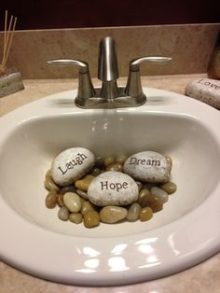 Here is a cute idea for the bathroom sink so that the energy doesn’t simply run away down the drain. Of course, the stones you use would have to be maintained so that they wouldn’t attract anything furry or green… like algae or soap scum, but it’s really a cute idea, and worth doing, if you like it!
Here is a cute idea for the bathroom sink so that the energy doesn’t simply run away down the drain. Of course, the stones you use would have to be maintained so that they wouldn’t attract anything furry or green… like algae or soap scum, but it’s really a cute idea, and worth doing, if you like it!
Important points:
The first and foremost thing about feng shui cures that work is that they have to be really liked by you and make sense in your overall home decor style.
If you bring a so-called powerful feng shui cure that is supposed to work but looks totally out of sorts in your space, I assure you it will not create good feng shui for you. Maybe even quite the opposite.
Last but not least:
Lastly, I thought it might be fun to upload a gallery of really amazing and wonderful bathrooms so that we can drool, and fantasize, and dream…
Sources:
The Front Door
Furnishing and decorating your home starts at the front door. The front door can be considered a great opportunity for personal expression, not to mention the ultimate way to grab the attention of everyone in the neighborhood (if this is what you are after). The main entrance to any home can reveal much about the house and its inhabitants, so why not make the best of it?
Generalities
There are plenty of key elements that can make your project successful. The pathway or stairway leading to the front door can be added a fresh touch by using flower pots and other creative green arrangements.
The door mat, bell, door knob and door knock can all enhance the look of the main entrance, so try to take advantage of their presence the best way you can. Make a powerful statement by painting your door in a vivid, yet visually pleasing color, well integrated in the overall exterior design of the house. Then add a large street number or some other fun decorations to match the color.
Consider outdoor pendant lamps or various lighting solutions to flank the main pathway or stairway leading towards the main door.
Feng Shui and the Front Door
In feng shui, the front door is considered the called the mouth of Chi. It is through the front door that the house receives its feng shui nourishment of energy. The quality of this energy determines the quality of energy in your home. In classical feng shui, the choice of most auspicious color is based on the direction of the front door and its corresponding feng shui element.
Feng shui is all about good energy, and you can welcome this energy with a strong, auspicious feng shui front door. Because it is through the front door that the house absorbs most of the energy it needs in order to nourish your personal energy, it is important to do your best in creating a strong feng shui front door.
The easiest way to do that is to find the appropriate feng shui design for your door – be it with colors, shapes, images or materials. The best feng shui design is the one that nourishes the feng shui element that corresponds to the direction your front door is facing.
-
East
The feng shui element of the east is wood, so if your front door is facing east, your best choices are the wood element colors green and brown.
The Wood feng shui element is nourished by the Water feng shui element and supported by the Earth feng shui element, so you can also choose the colors of these two elements.
To sum it up for you, best feng shui colors for an East facing front door are (in order of their auspiciousness): green, brown, blue, black, very light yellow and all earthy colors.
Avoid the following colors for your East facing front door: red, purple, white and gray. These colors represent the element of Fire and Metal that are destructive to Wood.
-
Southeast
The color choices for your southeast front door are similar to an east facing door because they share the same feng shui element. The feng shui element of the Southeast direction is the Wood element, and the corresponding feng shui bagua energy is Money and Abundance.
In case of a Southeast facing front door, you have additional color choices because there are two more elements that bring good energy to this area. These two elements – the Water and the Earth feng shui elements – are both nourishing and supportive of Wood, so you can use their colors, too, for your Southeast facing front door
Because a Southeast facing door is considered a prosperity door in feng shui, often the best color and design choices are those corresponding to the Water feng shui element, as water is the universal symbol of prosperity flow and abundance.
To sum it up, the best feng shui colors for a Southeast facing front door are (in order of their auspiciousness): green, blue, brown, black, very light yellow and all earthy colors.
Avoid the following colors for your Southeast facing front door: red, purple, white and gray. These colors represent the elements of Fire and Metal that are destructive to Wood.
-
South
South is the only direction with the fire feng shui element, so the best feng shui color for a South facing front door is the red, of course! Other feng shui fire element colors that are good for your South door are yellow, purple, orange and strong pink/magenta. As some of these colors might not work with your house exterior, here are a couple other color choices.
The element of Wood is nourishing for the Fire element/creates it, thus the Wood element colors are also good for a South-facing front door.
To sum it up for you, best feng shui colors for a South facing front door are (in order of their auspiciousness): red, purple, strong yellow, deep orange, deep pink, green and brown colors.
Avoid the following colors for your South facing front door: blue, black and all earthy colors. These colors represent the elements of Water and Earth that are destructive/weakening for the Fire element of South.
-
Southwest
The feng shui energy associated with a southwest door is maternal energy, as well as the energy of love and marriage. Because of this, you should choose a color of the Earth element or go for a color of a feng shui element that nourishes Earth.
In case of a Southwest facing front door, there is one more feng shui element that you can use for an additional choice of colors. The element of Fire is nourishing for the Earth element/creates it, thus the Fire element colors are also good for a Southwest facing front door.
So, the best feng shui colors for a Southwest facing front door are (in order of their auspiciousness): earthy/sandy colors, yellow, burgundy red, purple, deep orange, and rich pink.
Avoid the following colors for your Southwest facing front door: green, brown, white, gray, blue and black. These colors represent the elements of Wood, Metal and Water that are destructive/weakening for the Earth element of the Southwest bagua area.
-
West
For a western facing door go for the colors of the metal feng shui element, which are white and gray. If they’re a little bland for your tastes, you can also go back to Earth element color choices for your western facing front door.
In the case of a West facing front door, there is one more feng shui element you can use; this gives you a wider range of good colors. The element of Earth is nourishing for the Metal element, thus all Earth element colors are also good for a West facing front door.
So, the best feng shui colors for a West facing front door are (in order of their auspiciousness): white, gray, light yellow and all earthy/sandy colors.
Avoid the following colors for your West facing front door: blue, black, red, purple, orange, and deep pink. These colors represent the elements of Water and Fire that are weakening/destructive for the Metal element of West direction.
-
Northwest
A northwest front door has the same best color choices as the western facing door because both directions share the same feng shui element of metal. However, because in feng shui the northwest direction is associated with helpful people, you might need to pay extra attention to it.
In the case of a Northwest facing front door, you can also use the colors of the Earth feng shui element, as this element is nourishing/creates the Metal element.
So, the best feng shui colors for a Northwest facing front door are (in order of their auspiciousness): white, gray, light yellow and all earthy/sandy colors.
Avoid These Colors for Your Northwest Facing Front Door: blue, black, red, purple, orange, and deep pink. These colors represent the elements of Water and Fire that are weakening/destructive for the Metal element of Northwest direction.
-
North
North is the only direction of the feng shui element of water, so the best choices for a north facing door are the water element colors, black and blue. If these two colors do not work well with your house exterior, you can go for metal element colors.
In case of a North facing front door, there is one more feng shui element that you can use for an additional choice of colors. The element of Metal is nourishing for the Water element/creates it, thus Metal element colors are also good for a North facing front door.
So, the best feng shui colors for a North facing front door are (in order of their auspiciousness): blue, black, white and gray.
Avoid the following colors for your North facing front door: green, brown, yellow, red, purple, orange, and deep pink. These colors represent the elements of Wood, Earth and Fire that are weakening/destructive for the Water element of North direction.
-
Northeast
A northeast facing front door is an opening to the energy of spiritual growth and cultivation. Its feng shui element is Earth. When you have a Northeast facing front door, there is one more feng shui element that you can use as an additional choice of color.
The feng shui element of Fire is nourishing for the Earth element because it creates it, thus the Fire element colors are also good for a Northeast facing front door.
So, the best feng shui colors for a Northeast facing front door are (in order of their auspiciousness): earthy/sandy colors, yellow, burgundy red, purple, deep orange, and rich pink.
Avoid the following colors for your Northeast facing front door: green, brown, white, gray, blue and black. These colors represent the feng shui elements of Wood, Metal and Water that are destructive/weakening for the Earth element of the Northeast area.
Wow! So that’s a lot of information. And all I was thinking about was painting the front door red. Not a good feng shui color for my East facing door.
Painted Art Doors
So… I’m going to have to get creative. And well… I found a bunch of really fun and interesting painted doors, and now I have some great ideas. Here’s a gallery of the images I found:
Sources: The Spruce, and Fresh Home
Feng Shui – Project Overview
This post provides links to pertinent aspects of the Feng Shui project, so that you won’t have to sift through the archives to find out what you want to know.
This project was combined with a project on Clearing Our Clutter. The two projects were intended to work in tandem with one another, for this reason, I included the decluttering links as well. If you are only interested in the Feng Shui information, you can click on the Feng Shui category link in the sidebar. The Clearing Our Clutter posts have a project overview of their own, here: Clearing Our Clutter – Project Overview.
Links to the preliminary information:
- Feng Shui for Prosperity – the original concept
- What is Feng Shui?
- What is a Bagua?
If you would like to try this project for yourself, you can start on Day One: Make a Feng Shui Journal, and come back daily to continue on thru to the last one: Your Car is Your Friend. Or, you can pick through the posts, finding what seems interesting and useful. The important thing is to commit to a daily practice.
As you work with the Feng Shui project, we encourage you to post your thoughts, ideas, results, joys and disappointments as you go. This is an active blog, and if you post, we will notice and reply, and give you the benefit of our own experience and support if it seems pertinent or appropriate.
The basic summary of our results is posted here: Wrapping things up.
Here is the complete listing of the daily posts for the Feng Shui project:
- Day 1: Make a Feng Shui Journal and 27 Fling Boogie
- Day 2: Create a Bagua For Your Home and 27 things find a new home
- Day 3: The Prosperity Area and Purple for Prosperity and 5 minute room rescue
- Day 4: Big Money Symbols and Hot spot fire drill
- Day 5: Fame and Reputation Area and Liven up your Fame and Reputation with Color
- Day 5: Let your light shine and 3 Minutes to Fame and Fortune
- Day 6:Undergarment Boogie and The Love and Relationship Area
- Day 7: Symbols of love and Spread the love. and Colorize your love life
- Day 8: A quickie and The Creativity and Children Area
- Day 9: Enliven creativity and A quick fix and Colorize your Creativity
- Day 10: Enhancing the flow of chi and Mastering the concept of Chi and Clear that corner
- Day 11: Removing Hazards to Prosperity
- Day 12: Removing Hazards to Fame and Reputation
- Day 13: Removing Hazards to Relationships
- Day 14: Removing Hazards to Creativity
- Day 15: Another 27 Fling Boogie and Helpful People and Travel – Overview
- Day 16: Attracting Helpful People and Another five minute room rescue and Color and Containers for Helpful People
- Day 17: Your career in black and white and Take care of it now and Career area – an overview
- Day 18: Get your career moving and The rubber meets the road
- Day 19: Another hot spot fire drill and Skills and Knowledge area – an overview
- Day 20: Add substance to Skills and Knowledge and Book Drop and Enliven your Skills with color
- Day 21: Grab some garage sale stuff and Family area – an overview
- Day 22: Stabilize your Family area with symbols and Family photo project and Colorize your family area
- Day 23: Harmonize and healing with color and Finding your center and General and healing area – an overview
- Day 24: Symbols and anchors for your center and 5 extra minutes
- Day 25: Remove Hazards from Helpful People and Travel Area…
- Day 26: Remove hazards to your career and Remove hazards to Skills and Knowledge
- Day 27: Remove hazards to family area and Remove hazardous elements from Health area
- Day 28: A quick summary of each area and The effects of clutter
- Day 29: The Feng Shui Cover Your Butt Cure and Declutter – Let’s go for it!
- Day 30: Feng shui for your car and Car bagua and Your car is your friend
Wrapping Things Up
 Well, today is our last day of Feng Shui and De-cluttering, so it’s time to wrap things up and assess the effects this project had on our prosperity and our lives. So here is a questionaire to help bring things into focus:
Well, today is our last day of Feng Shui and De-cluttering, so it’s time to wrap things up and assess the effects this project had on our prosperity and our lives. So here is a questionaire to help bring things into focus:
- Did you do the de-cluttering projects?
- How well did they work for you?
- Which one was your favorite?
- What did you like most about the de-cluttering?
- What did you like least?
- How do you feel that the de-cluttering process impacted your life?
- Are you going to participate in the 200 things idea?
- Did you do any of the feng shui cures
- Did they achieve the desired effect?
- What happened?
- What, if anything, did you learn about yourself?
- Are you going to continue to use the principles of feng shui?
- Overall, would you rate this months as a “success” with regard to being a path to prosperity?
Here is a picture of the world’s largest wind chimes.
Cool huh?
Your car is your friend

Many people spend hours at a time in their cars which become like mini-homes. Like our homes, they become a reflection and extension of ourselves. Negative chi in cars has the power to create lasting damage and destruction to their owners and to others.
Some people talk to their cars, others give them names and personalize them. In some parts of the world they are blessed. Negative energy breeds negative response, so we should aim to build up a caring relationship with our cars.
For our de-clutter activity today, go out to your car and take a good long look. Does the outside look good and is the inside a mess? Does it look like it belongs to a bag lady? Or maybe it looks like it just came back from a mud wrestling contest. This car is your best friend. If your best friend arrived at your house, looking like that, what would you do?
So now you know what needs to be done, don’t put it off for another minute. Just do it.
Car Bagua
Cut a six-inch bagua shape in each of the eight outside bagua colors and cut a nine-inch circle in yellow for the center. Arrange them in the proper order and tape them together. The final configuration should look like a colorful daisy with a yellow center and different colored petals. Place this daisy under the mat of the car. The black petal of the daisy should be closest to the rear trunk, and red (Fame) toward the engine. Place this bagua under the driver’s seat, or under the mat that covers the floor board.
Simply having a daisy (any size) somewhere on you (or in your brief case, shoe, or underwear) will assist you while on the road. Since this daisy is a complete bagua representation, it’s hard to think of any place that would be inappropriate.
From Move Your Stuff, Change Your Life
by Karen Rauch Carter
- Radical Self Care Project Overview by shirleytwofeathers - No Comment
- Radical Self Care Image Gallery by shirleytwofeathers - No Comment
- It’s A Wrap by shirleytwofeathers - 3 Comments
- Something To Consider by shirleytwofeathers - 1 Comment
- Nurturing Your Precious Self by shirleytwofeathers - 3 Comments
me: Make Your Own Violet Fire
Abdulrahman: Money Chant – Very Fast
Shirley Twofeathers: It’s A Wrap
Daniel Knirs: It’s A Wrap
Shirley Twofeathers: It’s A Wrap
